

How to Say ‘Safe Travels’ in French: A Guide to Bon Voyage
Traveling to a foreign country can be an exciting and enriching experience, but it is always important to be well-prepared and respectful of the local customs and language. If you happen to be heading to a French-speaking destination, one phrase that you will often hear is “Bon Voyage,” which literally translates to “Good Trip.” This charming expression is commonly used to wish someone ‘safe travels’ when embarking on a journey. In this article, we will take a closer look at the proper usage and variations of ‘Bon Voyage’ in French, so that you can confidently bid farewell to your loved ones, friends, or colleagues as they set off on their adventures. Whether you are a language enthusiast, a traveler, or simply someone interested in expanding their linguistic repertoire, this guide will equip you with the necessary knowledge to say ‘safe travels’ in an elegant and authentic manner.
Table of Contents
Understanding the French Phrase “Bon Voyage”
A. explanation of the literal meaning and cultural context.
The French phrase “Bon Voyage” is commonly used to wish someone a good and safe journey. The literal translation of “Bon Voyage” is “good journey” or “good trip.” The phrase reflects the cultural values of the French-speaking countries, where expressing well wishes before someone embarks on a journey is considered polite and thoughtful. It is a way to show concern for the person’s well-being and wish them luck on their travels.
B. Common usage of “Bon Voyage” in French-speaking countries
“Bon Voyage” is widely used in French-speaking countries, such as France, Canada (particularly in Quebec), Belgium, Switzerland, and many African countries where French is spoken. It is often used when saying goodbye to someone who is about to embark on a trip, whether it be a short leisure trip or a long journey.
In these countries, it is common to hear “Bon Voyage” being said at airports, train stations, or even when bidding farewell to friends and family. It is seen as a polite and friendly way to acknowledge someone’s departure and wish them a safe and pleasant journey.
The phrase is not limited to formal settings; it can also be used among friends and acquaintances. Regardless of the context, saying “Bon Voyage” is a customary way to convey well wishes and show that you care about the person’s travel experience.
Understanding the cultural context and common usage of “Bon Voyage” is essential for travelers, as it allows them to not only participate in the local customs but also to connect with the people they encounter during their journey. By using this phrase, travelers can demonstrate respect for the local culture and language, fostering positive interactions and experiences.
IBrief French Language Overview
A. introduction to the french language and its global reach.
The French language, known as “le français,” is one of the most widely spoken languages in the world. It is the official language of 29 countries, including France, Canada, Belgium, Switzerland, and several African nations. French is also one of the six official languages of the United Nations, making it an important language for international diplomacy.
With its global reach, learning the basics of the French language can be incredibly beneficial for travelers. Not only does it open doors to various French-speaking countries, but it also allows for a deeper understanding and appreciation of their cultures.
B. Importance of learning basic phrases for travelers
For travelers, understanding basic phrases in the local language can greatly enhance their experience and facilitate communication with locals. Even a simple “bonjour” (hello) or “merci” (thank you) can go a long way in establishing connections and showing respect.
Learning basic French phrases is particularly helpful when navigating transportation systems, ordering food at restaurants, or seeking assistance. It not only simplifies daily interactions but also shows locals that you are making an effort to engage with their language and culture.
Moreover, speaking a few words of French can help travelers immerse themselves in the local atmosphere and gain a deeper appreciation for the destinations they visit. It demonstrates a willingness to embrace the language and allows for a more enriching cultural experience.
By learning basic French phrases, travelers can break down the language barrier, forge meaningful connections, and navigate unfamiliar territory more easily. It not only adds practical value but also shows respect for the local culture and enhances the overall travel experience. So, before embarking on your next adventure, take the time to learn some simple French phrases and open the door to a world of linguistic and cultural discovery.
RecommendedBasic French Expressions for Travelers
A. greetings and introductions.
When traveling to a French-speaking country, it is essential to know how to greet and introduce yourself to the locals. Understanding basic French phrases can help you navigate through different situations and make a positive impression. Here are a few common greetings and introductions to get you started:
– “Bonjour” (Hello) – This is the most common way to say hello in French. It can be used anytime during the day and in any setting. – “Comment ça va?” (How are you?) – This is the standard way to ask someone how they are doing. It is important to note that the French usually reply with a detailed response rather than a simple “good” or “fine.” – “Je m’appelle [Your Name]” (My name is [Your Name]) – This is how you introduce yourself in French. It is polite to use this phrase when meeting new people. – “Enchanté(e)” (Nice to meet you) – This is a common response to an introduction. It’s a polite way to express your pleasure in meeting someone.
B. Asking for directions and assistance
While exploring a new place, it is inevitable to get lost or require assistance. Knowing how to ask for directions or help in French can make your travel experience much smoother. Here are a few phrases to use when seeking guidance:
– “Où est…?” (Where is…?) – Use this phrase followed by the name of a specific location or landmark to ask for directions. – “Je cherche… / Est-ce que vous pouvez m’aider?” (I am looking for… / Can you help me?) – Use this phrase when you need assistance in finding something or someone. – “Excusez-moi, pouvez-vous me montrer le chemin vers…?” (Excuse me, can you show me the way to…?) – This is a polite way to request someone to guide you to a particular place. – “Je suis perdu(e)” (I am lost) – Use this phrase to communicate that you are unsure of your current location and need help finding your way back.
C. Expressing gratitude and politeness
It is essential to be polite and show gratitude when interacting with the locals. French people appreciate good manners, and using the right phrases can go a long way. Here are a few expressions to express gratitude and politeness:
– “Merci” (Thank you) – This is the most common way to express gratitude in French. Use it whenever someone helps you or offers you something. – “S’il vous plaît” (Please) – Use this phrase when making a request or asking for a favor. – “Excusez-moi” (Excuse me) – This is a polite way to get someone’s attention or apologize for any inconvenience. – “Je suis désolé(e)” (I am sorry) – Use this phrase to apologize for any mistakes or misunderstandings.
By familiarizing yourself with these basic French expressions, you will not only be able to navigate daily interactions more smoothly but also make a positive impression on the locals. Remember to practice these phrases before your trip and don’t be afraid to use them during your travels.
Introducing “Safe Travels” in French
A. explanation of the phrase “safe travels” in english.
In the context of traveling, “safe travels” is a phrase commonly used to express well wishes for someone’s journey. It conveys the hope that the person will have a safe and secure trip without encountering any harm or mishaps along the way. It is a way to show care and concern for the traveler’s well-being and overall successful voyage.
B. Translation of “safe travels” into French
The French translation of “safe travels” is “Bon voyage.” The phrase “Bon voyage” is widely recognized and used not only in France but also in many other French-speaking countries. It holds the same meaning as its English counterpart, expressing the desire for a safe and pleasant journey.
C. Pronunciation tips
To pronounce “Bon voyage” correctly in French, remember that the letter “o” is pronounced like the “o” in the English word “hot,” and the letter “i” is pronounced like the “ee” in the English word “bee.” The word “Bon” is pronounced as “bohn,” while “voyage” is pronounced as “vwah-yaj.”
It is important to note that the “g” in “voyage” is silent, and the ending “-age” is pronounced with a soft “j” sound. Overall, the pronunciation should be smooth and flowing, emphasizing the second syllable with a slight emphasis on the final “e.”
Understanding the correct pronunciation ensures that your well wishes are conveyed accurately and respectfully, adding a personal touch to your interactions with French-speaking individuals.
By incorporating the phrase “Bon voyage” into your travel vocabulary, you not only show cultural sensitivity but also enhance your communication skills while exploring French-speaking countries. Remember to always use it in appropriate situations when bidding farewell to someone who is embarking on a trip, whether it’s a friend, family member, or even a stranger you meet while traveling.
Safe travels, or “Bon voyage,” is just one of many ways to express your well wishes in French. In the next section, we will explore alternative phrases with similar meanings to add variety to your repertoire of good luck expressions.
Alternatives to “Bon Voyage”
A. exploring other french phrases with similar meanings.
While “Bon Voyage” is the most common phrase used to wish someone safe travels in French, there are several alternatives that can be used to convey similar sentiments. One of the alternatives is “Bon séjour,” which translates to “good stay.” This phrase is often used when someone is embarking on a trip but will stay in one place for an extended period.
Another alternative is “Bonne route,” which means “good journey.” This expression is commonly used to wish someone a safe and pleasant journey, especially when they are traveling by road or by any means of transportation.
B. Understanding the appropriate usage of alternative phrases
It is important to understand when to use these alternative phrases in order to convey the appropriate sentiment. “Bon séjour” should be used when someone is going on a trip where their primary intention is to stay in one place, such as a vacation or a business trip. On the other hand, “Bonne route” is more suitable when someone is embarking on a journey that involves traveling from one place to another, regardless of the mode of transportation.
These alternative phrases can also be combined with “Bon Voyage” to provide a more comprehensive well-wish. For example, you can say “Bon Voyage et bon séjour” to wish someone a good journey and a pleasant stay.
It is worth noting that while these alternative phrases are less common than “Bon Voyage,” they are still widely understood and appreciated by native French speakers. Using these phrases shows that you have taken the effort to learn and adapt to the language and culture of the destination.
In conclusion, while “Bon Voyage” is the go-to phrase for wishing safe travels in French, there are other alternatives that can be used depending on the specific context. Understanding the meaning and appropriate usage of these alternative phrases adds depth and personalization to your well wishes. So next time you want to wish someone safe travels in French, consider using one of these alternatives to show your thoughtfulness and cultural understanding.
Adding Personalized Touch to Well Wishes
Expressing additional sentiments beyond “safe travels”.
When it comes to wishing someone well on their journey, sometimes a simple “safe travels” may not feel enough. Adding a personalized touch to well wishes can make your message more heartfelt and meaningful. In French, there are various ways to express additional sentiments beyond the standard “Bon Voyage.”
One common sentiment to include in your well wishes is “have a great trip.” In French, you can say “Bon voyage et passez un excellent séjour.” This phrase not only expresses the hope for a safe journey but also emphasizes the desire for a wonderful experience during the trip.
If you want to convey the idea of exploring and discovering new things, you can use the phrase “Bon voyage et profitez bien de votre découverte.” This encourages the traveler to fully embrace the adventure and make the most out of their discoveries.
Providing examples of heartfelt messages in French
To further enhance the personalized touch of your well wishes, you can incorporate specific details about the person’s journey or destination. For instance, if your friend is going to Paris, you can say “Bon voyage et profitez bien des croissants et du romantisme parisien.” This message not only conveys your wishes for a safe trip but also highlights the iconic aspects of the city they will be visiting.
Another example of a heartfelt message could be “Bon voyage et que chaque nouvelle expérience enrichisse votre vie.” This showcases your desire for the traveler to have enriching experiences during their journey and emphasizes personal growth through encountering new situations.
Remember, adding a personal touch is about tailoring your message to the individual and their specific plans or interests. By doing so, your well wishes become more authentic and thoughtful.
In conclusion, while “safe travels” is a commonly used phrase, adding a personalized touch to well wishes can make them more meaningful and special. French offers various options to express additional sentiments beyond the standard phrase “Bon Voyage.” By incorporating specific details and tailoring your message to the individual, you can create heartfelt messages that truly resonate with the traveler. So, the next time you wish someone well on their journey, consider adding a personal touch in French to make your well wishes even more memorable.
Cultural Considerations
Importance of cultural sensitivity while traveling.
When traveling to French-speaking countries, it is important to be culturally sensitive and aware of local customs and traditions. French culture places a great emphasis on etiquette and politeness, and this extends to well-wishing phrases like “Bon Voyage.” Being mindful of cultural considerations not only shows respect for the local culture but also enhances the overall travel experience.
French people value personal connections and take the time to exchange pleasantries before getting down to business. They appreciate genuine well wishes and consider it a sign of good manners and camaraderie. So, when using phrases like “Bon Voyage,” it is crucial to show sincerity and warmth.
Understanding customs and traditions associated with well-wishing
In France, well-wishing is deeply rooted in tradition. When someone is about to embark on a journey, it is customary for family, friends, and colleagues to express their best wishes for a safe and pleasant trip. These good wishes are often accompanied by small gifts, such as travel accessories or good luck charms.
The French also have specific customs associated with well-wishing before a journey. It is believed that if the traveler steps back into their home after saying goodbye, it will bring bad luck. Therefore, the well-wishers often wait outside until the traveler is safely out of sight.
Furthermore, it is common for the French to kiss both cheeks as a form of greeting and farewell. When saying “Bon Voyage,” it is appropriate to accompany it with this customary gesture. However, it is essential to note that the number of kisses may vary depending on the region in France. For example, while people in Paris typically exchange two kisses, those in Marseille may exchange three.
By understanding and respecting these customs, travelers can better integrate into the local culture and create positive interactions with the French people they encounter during their journeys.
In conclusion, being aware of cultural considerations when using well-wishing phrases like “Bon Voyage” in French-speaking countries is crucial. It demonstrates respect for the local culture and enhances the travel experience. Additionally, understanding the customs and traditions associated with well-wishing allows travelers to fully immerse themselves in the local culture and form meaningful connections with the people they meet. By incorporating these cultural considerations into their travels, travelers can navigate French customs with ease and embrace the warmth and hospitality of the French people.
Etiquette Tips for Using “Bon Voyage”
When using the phrase “Bon Voyage” in French, it is important to be aware of the appropriate situations and how to pronounce it correctly. Understanding the etiquette surrounding its usage will ensure respectful and meaningful well wishes.
A. Appropriate situations to use the phrase
“Bon Voyage” is commonly used when bidding farewell to someone who is embarking on a journey, especially a long-distance or international trip. It expresses the hope that the person’s journey will be safe, pleasant, and successful. You can use it when saying goodbye to friends, family members, colleagues, or acquaintances who are traveling.
It is also appropriate to use “Bon Voyage” when sending written messages, such as cards or emails, to someone before their trip. Including this phrase adds a thoughtful touch and shows your genuine concern for their well-being.
B. How to pronounce “Bon Voyage” correctly in French
The correct pronunciation of “Bon Voyage” in French is “bohn vwa-yahzh.” The “o” in “bon” is pronounced as in the English word “song,” and the “o” in “voyage” is similar to the “wa” sound in “water.” The “zh” sound at the end of “voyage” is similar to the “s” sound in the English word “treasure.”
It is essential to pronounce the phrase accurately to convey your good wishes effectively. Practice saying it aloud to ensure you are pronouncing it correctly.
Remember that the phrase “Bon Voyage” is specific to well-wishing in the context of travel. Using it appropriately and pronouncing it correctly will show respect for the French language and culture. By using this phrase, you can express your genuine concern for someone’s safe travels and demonstrate your understanding and appreciation for the French language.
Language Resources for Travelers
Introduction to online language-learning platforms and apps.
In today’s interconnected world, learning a new language has become easier than ever. With numerous online language-learning platforms and apps available, travelers have a wide range of resources to choose from to enhance their language skills. These platforms provide a convenient and flexible way to learn languages at one’s own pace.
Recommendations for French language resources for travelers
For travelers looking to learn French or improve their existing language skills, several excellent resources are available. One popular option is Duolingo, a mobile app that offers interactive lessons and exercises in French. Its gamified approach makes language learning fun and engaging.
Another highly recommended resource is Babbel, an online platform that provides comprehensive French courses suitable for beginners and intermediate learners. Babbel’s lessons are designed to be practical and relevant to real-life situations, making it particularly useful for travelers.
For those who prefer more structured and traditional learning, Rosetta Stone offers French language courses that cover all aspects of language learning, including listening, speaking, reading, and writing. Their immersive teaching method aims to replicate the natural language acquisition process, ensuring a deep understanding of the French language.
Additionally, FluentU offers a unique approach to language learning by utilizing authentic French videos, such as movie trailers, music videos, and news clips. This platform provides learners with an immersive and engaging experience, allowing them to learn French in context.
Additional language resources
In addition to these online platforms and apps, there are other resources available to help travelers learn French. Language exchange websites, such as Tandem and HelloTalk, facilitate conversations with native French speakers, providing an opportunity to practice speaking and improve language skills. French language podcasts, such as “Coffee Break French” and “News in Slow French,” offer audio lessons and interesting content for language learners on the go.
Promoting language learning for travel
Learning the local language of a destination not only enriches the travel experience but also demonstrates respect and appreciation for the culture and people of the country visited. By incorporating language learning into their travel preparations, travelers can communicate more effectively, make meaningful connections, and navigate unfamiliar environments with greater ease.
In conclusion, language resources for travelers, particularly those learning French, provide convenient and effective ways to enhance language skills. Online platforms and apps like Duolingo, Babbel, Rosetta Stone, and FluentU offer comprehensive courses and engaging content to help travelers learn French at their own pace. In addition to these resources, language exchange websites and podcasts provide valuable opportunities for practice and immersion. By taking advantage of these resources, travelers can enhance their language skills and make their travel experiences more rewarding.
In this comprehensive guide, we have explored the significance of expressing well wishes in different languages, particularly focusing on how to say “safe travels” in French. We have discussed the literal meaning and cultural context of the French phrase “Bon Voyage,” as well as its common usage in French-speaking countries. Additionally, we have provided a brief overview of the French language and the importance of learning basic phrases for travelers.
To help travelers navigate their way in French-speaking countries, we have covered basic French expressions for greetings, introductions, asking for directions and assistance, as well as expressing gratitude and politeness. Furthermore, we have introduced the phrase “safe travels” in English and provided its translation into French, along with pronunciation tips.
For those seeking alternatives to “Bon Voyage,” we have explored other French phrases with similar meanings and emphasized the importance of understanding their appropriate usage. We have also encouraged adding a personalized touch to well wishes by expressing additional sentiments beyond just “safe travels” and provided examples of heartfelt messages in French.
Understanding cultural considerations is crucial while traveling, and we have highlighted the importance of cultural sensitivity when expressing well wishes. By understanding customs and traditions associated with well-wishing, travelers can engage respectfully with local communities.
To ensure proper etiquette, we have discussed appropriate situations to use the phrase “Bon Voyage” and provided guidance on pronouncing it correctly in French. Pronunciation is essential to convey sincerity and respect when expressing well wishes in any language.
As language resources play a vital role in language learning, we have introduced online platforms and apps that can assist travelers in their language journey. We have also recommended specific French language resources that cater to the needs of travelers, making it easier for them to learn and communicate in French-speaking countries.
In conclusion, incorporating the phrase “Bon Voyage” into your travel vocabulary not only shows your respect for the French language but also allows you to connect with the locals on a deeper level. By learning and using this phrase, you can wish others safe travels and experience the joy of cultural exchange. Remember, saying “safe travels” in French is not just a simple gesture; it is a way to show empathy and goodwill towards fellow travelers. Bon Voyage!
Leave a Comment Cancel reply
Save my name, email, and website in this browser for the next time I comment.
The Enlightened Mindset
Exploring the World of Knowledge and Understanding
Welcome to the world's first fully AI generated website!
How to Say Safe Travels in French: A Comprehensive Guide
By Happy Sharer
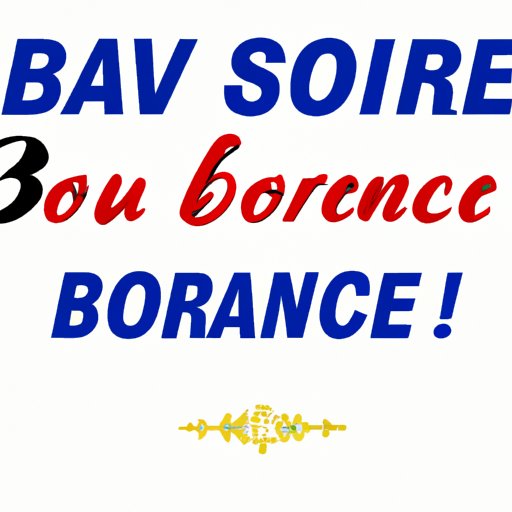
Introduction
When you’re sending someone off on a trip, whether it’s for business or pleasure, you want to wish them the best of luck with their travels. In French, one way to do this is by saying “bon voyage” which literally translates to “good journey.” This article will discuss the phrase “bon voyage” and other ways to say “safe travels” in French. It will provide a comprehensive guide on how to express your best wishes for a safe trip in French.
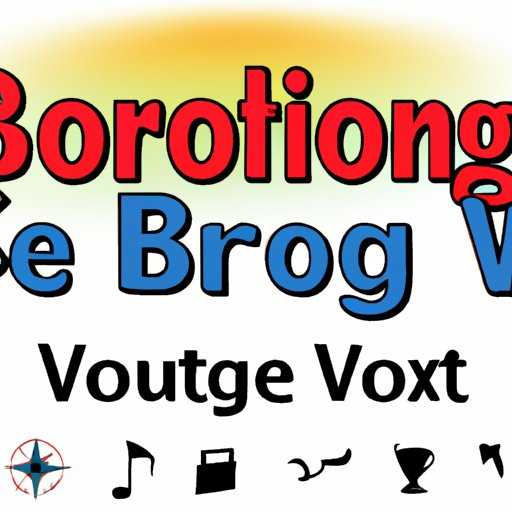
A Guide to Saying “Bon Voyage” in French
The most common phrase for wishing someone a safe and enjoyable journey in French is “bon voyage.” This phrase can be used to both send people off on their travels as well as to welcome them back upon their return. Depending on the context, it can also mean “have a good time” or “enjoy yourself.”
There are several variations of “bon voyage” depending on the gender of the person being addressed. For example, if you are addressing a female, you would say “bonne voyage,” while if you are addressing a male, you would say “bon voyage.” Another variation is “bon voyage à vous,” which is a more formal way of saying “good journey” and is suitable for use when addressing a group of people.
In some regions of France, such as the south, there are different dialects of the French language. In these areas, you may hear the phrase “bonne route” instead of “bon voyage.” This phrase has the same meaning but is more commonly used in the south.
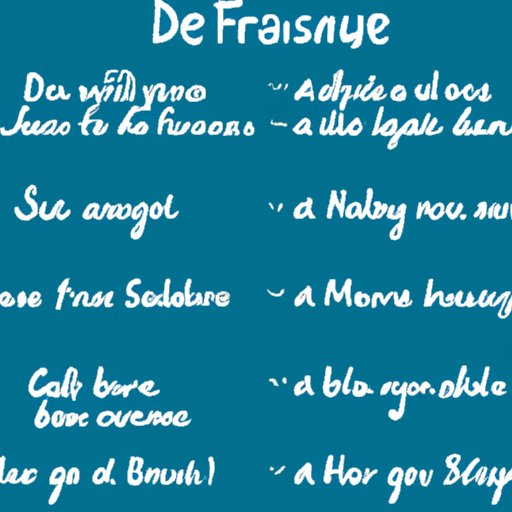
10 Ways to Wish Someone Safe Travels in French
Now that you know the basic phrase for wishing someone a safe journey in French, here are 10 additional phrases you can use to express your best wishes:
- Bon voyage – Good journey/Have a good trip
- Bonne route – Have a good trip (more commonly used in the south)
- Bonne chance – Good luck
- Bonne continuation – Have a good trip/Take care
- Prends soin de toi – Take care of yourself
- Sois prudent – Be careful
- Fais attention – Watch out
- Amuse-toi bien – Have fun
- A bientôt – See you soon
- Garde le cap – Keep the course/Stay the course
A Beginner’s Guide to Travel Greetings in French
If you are just starting to learn French and want to wish someone safe travels, here are some helpful tips and phrases you should know:
First, it’s important to remember that the French language has gendered words. You should always use the appropriate gender when addressing someone, using “monsieur” for a man and “madame” or “mademoiselle” for a woman. When wishing someone a safe journey, you should use the appropriate gender when saying “bon voyage” or any other phrase.
When saying goodbye to someone in French, there are several different ways to express your sentiments. The most common phrase is “au revoir,” which literally translates to “until we see each other again.” Other phrases include “à bientôt,” which means “see you soon,” and “bonne journée,” which means “have a good day.”
It is also important to practice proper pronunciation when speaking French. Although it can be difficult to master, it is essential to ensure that you are understood. Try to practice with audio recordings or native speakers to get an idea of how certain words and phrases should sound.
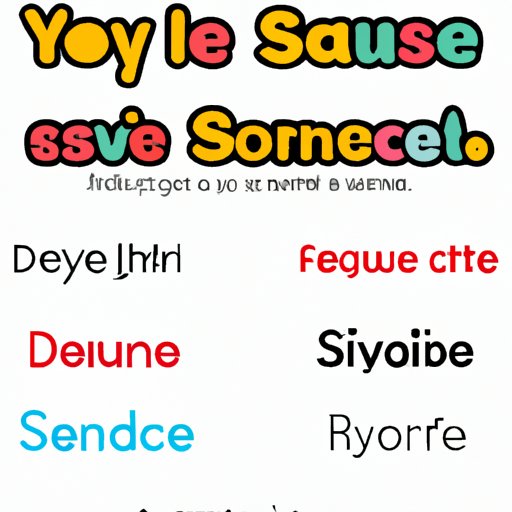
5 Simple Phrases for Wishing Someone a Safe Journey in French
Here are five simple phrases you can use to wish someone a safe journey in French:
- Bonne route – Have a good trip
- Bon courage – Good luck/Be brave
- Bonne santé – Stay healthy
How to Express Your Best Wishes for a Safe Trip in French
When expressing your best wishes for a safe trip, it’s important to make sure that your message is sincere and heartfelt. Here are some examples of wishes you can share with someone who is about to embark on a journey:
- Je te souhaite un bon voyage – I wish you a good journey
- Bonne chance pour ton voyage – Good luck on your journey
- Je prie pour ta sécurité – I pray for your safety
- Je te souhaite une bonne route – I wish you a good trip
- Je t’envoie des pensées positives – I’m sending you positive thoughts
You can also express your sentiments in different ways. For example, you could write a poem or a letter, or draw a picture to show your best wishes. You could even make a video to share with your loved one.
Finally, try to keep your message short and sweet. Long messages can come across as insincere, so try to keep your wishes brief and to the point. Also, make sure to speak slowly and clearly when expressing your best wishes in French.
Saying “safe travels” in French can be a great way to show someone that you care about them and wish them the best of luck on their journey. Remember to use the appropriate gender when wishing someone a safe journey, and try to practice proper pronunciation when speaking French. There are many different phrases you can use to express your best wishes for a safe trip, from “bon voyage” to “bonne route” to “bon courage.” With this comprehensive guide, you now have the tools to properly wish someone a safe journey in French.
(Note: Is this article not meeting your expectations? Do you have knowledge or insights to share? Unlock new opportunities and expand your reach by joining our authors team. Click Registration to join us and share your expertise with our readers.)
Hi, I'm Happy Sharer and I love sharing interesting and useful knowledge with others. I have a passion for learning and enjoy explaining complex concepts in a simple way.
Related Post
Exploring japan: a comprehensive guide for your memorable journey, your ultimate guide to packing for a perfect trip to hawaii, the ultimate packing checklist: essentials for a week-long work trip, leave a reply cancel reply.
Your email address will not be published. Required fields are marked *
Expert Guide: Removing Gel Nail Polish at Home Safely
Trading crypto in bull and bear markets: a comprehensive examination of the differences, making croatia travel arrangements, make their day extra special: celebrate with a customized cake.

How Do You Say Safe Travels in French
If you’re planning a trip to France, you might be wondering how to say "safe travels" in French. Well, look no further! In this article, we’ve got you covered with common phrases and useful expressions for wishing someone a safe journey in French. So whether you’re embarking on an adventure or sending someone off on their trip, we’ve got the words to help you convey your well wishes en français. Let’s dive in and explore the world of French travel phrases together!
Key Takeaways
- "Bon voyage!" and "Bonne route!" are common phrases used to wish someone safe travels in French.
- Other phrases include "Soyez prudent!" (Be careful!), "Bon périple" (Good adventure), and "Que la route te soit douce" (May your journey be smooth).
- Being able to communicate in the local language enhances the travel experience and shows care for others.
- Saying "Bon voyage" is a polite and caring way to wish someone a safe trip, and it conveys the hope for exciting experiences and wonderful memories.
Common Phrases for Safe Travels
To wish someone safe travels in French, you can say "Bon voyage!" It’s a common phrase used to express well wishes for someone embarking on a journey. When traveling, it’s important to have a sense of freedom and adventure. You want to experience new cultures, meet interesting people, and create lasting memories. Being able to communicate in the local language can enhance your travel experience and make it more enjoyable. In addition to "Bon voyage!", here are some other phrases you may find useful: "Bonne route!" which means "Have a good trip!", or "Soyez prudent!" which means "Be careful!". These phrases not only show your concern for the person traveling but also convey your desire for their safety and freedom throughout their journey.
Translations for "Safe Travels" in French

When traveling to France, it’s common to wish someone ‘Bon voyage’ for safe travels. But if you want to dive deeper into the language and culture, here are some other translations for ‘Safe Travels’ in French:
- Bonne route: Wishing someone a good journey.
- Voyage sécurisé: Wishing someone a secure journey.
- Déplacement en toute sécurité: Wishing someone a safe trip.
- Bon périple: Wishing someone a good adventure.
- Que la route te soit douce: May your journey be smooth.
As you explore the beautiful streets of France, may these phrases serve as reminders of freedom and the joy of traveling. Remember, language is not just about communication, but also about embracing different cultures and experiences. So go forth and immerse yourself in the beauty of France!
Useful Expressions for Wishing Safe Travels in French

Immerse yourself in the beauty of France by using these useful expressions to wish someone a secure journey or a good adventure. When you want to say "safe travels" in French, you can use the phrase "bon voyage." It’s a common expression that conveys your well wishes for someone’s journey. Another option is to say "voyage en toute sécurité," which means "travel safely." Both of these expressions are perfect for those seeking freedom and wanting to explore the wonders of France without any worries. So go ahead and embrace your adventurous spirit while also showing care for others by using these phrases when bidding farewell to your fellow travelers. Bon voyage!
How to Say "Have a Safe Trip" in French
Before embarking on your journey, make sure to wish others a secure trip by using the phrase ‘bon voyage’ in French. This simple expression is commonly used to express good wishes for someone’s travel. When you say ‘bon voyage,’ you are essentially saying ‘have a safe trip.’ It is a polite way of showing that you care about their well-being while they are away. Here are five items that can help paint a picture of what it feels like to wish someone a safe trip in French:
- The warm smile on your face as you bid them farewell.
- The excitement in the air as they prepare for their adventure.
- The anticipation of new experiences and discoveries.
- The feeling of joy knowing that you have sent them off with good wishes.
- The sense of freedom and liberation as they embark on their journey.
Saying "Bon Voyage" in French
Go ahead and spread some positivity by wishing others a ‘bon voyage’ in French – it’s a polite and caring way to send them off on their journey. Saying "bon voyage" is like giving someone a warm hug before they embark on their adventure. It’s a phrase that carries the hope for safe travels, exciting experiences, and wonderful memories. By using this expression, you not only show your support but also encourage the person to embrace new opportunities with an open heart. So next time you bid farewell to someone about to set off on their journey, remember to say "bon voyage" with genuine enthusiasm. Your words will uplift their spirits and remind them that they have your well wishes as they explore the world with freedom and joy. Bon voyage!
Frequently Asked Questions
Are there any other commonly used phrases in french to wish someone a safe journey.
There are indeed other commonly used phrases in French to wish someone a safe journey. These expressions convey well wishes and hope for a secure trip.
What Are Some Other Ways to Say ‘Have a Safe Trip’ in French Besides the Ones Mentioned in the Article?
There are several other ways to say "have a safe trip" in French besides the ones mentioned in the article. Some alternatives include "bon voyage" and "voyage en toute sécurité."
Are There Any Specific Cultural Customs or Gestures Associated With Wishing Someone Safe Travels in France?
When traveling in France, it’s important to be aware of cultural customs and gestures associated with wishing someone safe travels. These customs vary, so it’s best to do some research before your trip. Stay open-minded and respectful!
Can You Provide Any Tips on How to Pronounce the French Phrases for ‘Safe Travels’ Correctly?
To pronounce the French phrase for "safe travels" correctly, remember to emphasize the first syllable of each word. Repeat the phrase slowly and practice enunciating each sound clearly. You’ll get it!
Are There Any Particular Situations or Contexts Where It Would Be More Appropriate to Use ‘Bon Voyage’ Instead of Other Expressions for Wishing Safe Travels in French?
In certain situations or contexts, it may be more fitting to use "bon voyage" instead of other expressions for wishing safe travels in French. It adds a touch of elegance and sophistication to your well-wishes.
Leave a Comment Cancel reply
Save my name, email, and website in this browser for the next time I comment.
Notify me of follow-up comments by email.
Notify me of new posts by email.

How to say safe journey in french? A Tourists guide
How to say “safe journey” in french and more: 30 essential travel phrases.
How to say safe journey in french? Traveling in France or any French-speaking country can be a delightful experience. Knowing some key phrases in French not only enhances your travel experience but also helps in navigating through various situations smoothly. Here’s a comprehensive list of phrases, starting with how to wish someone a safe journey, followed by other useful expressions for hotels, airlines, and transportation.
1. Safe Journey – “Bon voyage”
- Usage : The classic way to wish someone a safe journey. Suitable in any context, whether it’s someone traveling by plane, train, or automobile.
2. Have a Good Trip – “Bon trajet”
- Usage : Similar to “Bon voyage,” but can be more specifically used for shorter or less significant journeys.
3. Welcome! – “Bienvenue!”
- Usage : Great for greeting someone upon their arrival.
4. Do you speak English? – “Parlez-vous anglais?”
- Usage : An essential question that can help bridge the language gap.
5. I don’t speak French very well. – “Je ne parle pas très bien français.”
- Usage : A humble way to inform others of your language proficiency, often met with understanding and patience.
6. Where is the bathroom? – “Où sont les toilettes?”
- Usage : An indispensable question for any traveler.
7. Can you help me, please? – “Pouvez-vous m’aider, s’il vous plaît?”
- Usage : Whether you’re lost or need assistance, this phrase is very useful.
8. I would like to book a room. – “Je voudrais réserver une chambre.”
- Usage : Essential for making hotel reservations.
9. Is breakfast included? – “Le petit-déjeuner est-il inclus?”
- Usage : Good to know when booking a hotel stay.
10. Can I have the bill, please? – “L’addition, s’il vous plaît?”
- Usage : Use this phrase at the end of your meal at a restaurant or to check out of your hotel.
11. Where is the airport? – “Où est l’aéroport?”
- Usage : Crucial for ensuring you’re heading in the right direction.
12. My flight is delayed. – “Mon vol est retardé.”
- Usage : Useful to communicate travel changes or to inform a hotel of a late arrival.
13. I lost my passport. – “J’ai perdu mon passeport.”
- Usage : An unfortunate situation where you’d need assistance immediately.
14. I need a doctor. – “J’ai besoin d’un médecin.”
- Usage : Important in case of a medical emergency.
15. How much does this cost? – “Combien ça coûte?”
- Usage : Essential for shopping or using services.
16. Can I pay by credit card? – “Puis-je payer par carte de crédit?”
- Usage : Good to know in a country where cash is less commonly used.
17. Please take me to this address. – “S’il vous plaît, emmenez-moi à cette adresse.”
- Usage : Useful when taking a taxi or ride-share.
18. Do you have any vacancies tonight? – “Avez-vous des chambres libres ce soir?”
- Usage : For finding last-minute hotel accommodations.
19. Is there Wi-Fi in the room? – “Y a-t-il du Wi-Fi dans la chambre?”
- Usage : In today’s connected world, this is a must-ask question.
20. Could you please clean my room? – “Pourriez-vous nettoyer ma chambre, s’il vous plaît?”
- Usage : When you need housekeeping in your hotel room.
21. I’m allergic to… – “Je suis allergique à…”
- Usage : Essential for dining out or when shopping for food.
22. A table for two, please. – “Une table pour deux, s’il vous plaît.”
- Usage : For making a reservation or being seated at a restaurant.
23. How do I get to…? – “Comment puis-je aller à…?”
- Usage : For directions to any location.
24. Can I see the menu, please?
- “Puis-je voir le menu, s’il vous plaît?”
- Usage : When you’re ready to order at a restaurant.
25. I missed my flight. – “J’ai raté mon vol.”
- Usage : Necessary for rebooking or explaining your situation.
26. Can I have a map? – “Puis-je avoir une carte?”
- Usage : Useful for navigating the city on your own.
27. What time is check-out? – “À quelle heure est le check-out?”
- Usage : Important to know to plan your departure accordingly.
28. Do you offer shuttle service? – “Offrez-vous un service de navette?”
- Usage : Convenient for getting to and from airports or major attractions.
29. Where can I rent a car? – “Où puis-je louer une voiture?”
- Usage : For those looking to explore on their own terms.
30. I would like to change my reservation. – “Je voudrais modifier ma réservation.”
- Usage : For adjusting travel plans, whether it’s for a flight, hotel, or car rental.
This list should serve as a comprehensive guide to help travelers communicate effectively while in French-speaking countries. Knowing these phrases not only makes the journey more enjoyable but also can help in navigating through unexpected situations with ease. Safe travels, or as the French say, “Bon voyage!”
For More Info : https://travel.state.gov/content/travel.html

- Constructed scripts
- Multilingual Pages
Bon voyage / have a good journey in many languages
Jump to phrases
How to wish people a good or safe journey. The phrase, bon voyage, is used in English without change, though the pronunciation is quite like the French.
People who have contributed to this section
If you would like to make any corrections or additions to this page, or if you can provide recordings, please contact me .
http://www.nypl.org/branch/central/dlc/df/expressions/bonvoyage.html
Other phrases
Welcome | Hello | How are you? | Long time no see | What's your name? | Where are you from? | Pleased to meet you | Good morning | Good afternoon | Good evening | Good night | Goodbye | Good luck | Cheers! | Have a nice day | Have a nice weekend | Bon appetit | Bon voyage | Yes, No | Maybe | I don't know | Do you understand? | I understand | I don't understand | Please speak more slowly | Please say that again | Please write it down | Do you speak English? | Do you speak [your language]? | I'm learning [your language] | How do you say ... in [your language]? | Speak to me in [your language] | Excuse me | I would like ... | How much is this? | Sorry | Please | Thank you | Where's the toilet? | This gentleman/lady will pay for everything | Would you like to dance? | Do you come here often? | I miss you | I love you | Get well soon | Go away! | Leave me alone! | Help! | Fire! | Stop! | Call the police! | Merry Christmas | Happy New Year | Happy Easter | Happy Birthday | Congratulations | One language is never enough | My hovercraft is full of eels
728x90 (Best VPN)
Why not share this page:

If you like this site and find it useful, you can support it by making a donation via PayPal or Patreon , or by contributing in other ways . Omniglot is how I make my living.
Get a 30-day Free Trial of Amazon Prime (UK)
If you're looking for home or car insurance in the UK, why not try Policy Expert ?

- Learn languages quickly
- One-to-one Chinese lessons
- Learn languages with Varsity Tutors
- Green Web Hosting
- Daily bite-size stories in Mandarin
- EnglishScore Tutors
- English Like a Native
- Learn French Online
- Learn languages with MosaLingua
- Learn languages with Ling
- Find Visa information for all countries
- Writing systems
- Con-scripts
- Useful phrases
- Language learning
- Multilingual pages
- Advertising

Unconventional language hacking tips from Benny the Irish polyglot; travelling the world to learn languages to fluency and beyond!
Looking for something? Use the search field below.
Home » Articles » 60+ Essential French Phrases for Beginners to Start Speaking Now
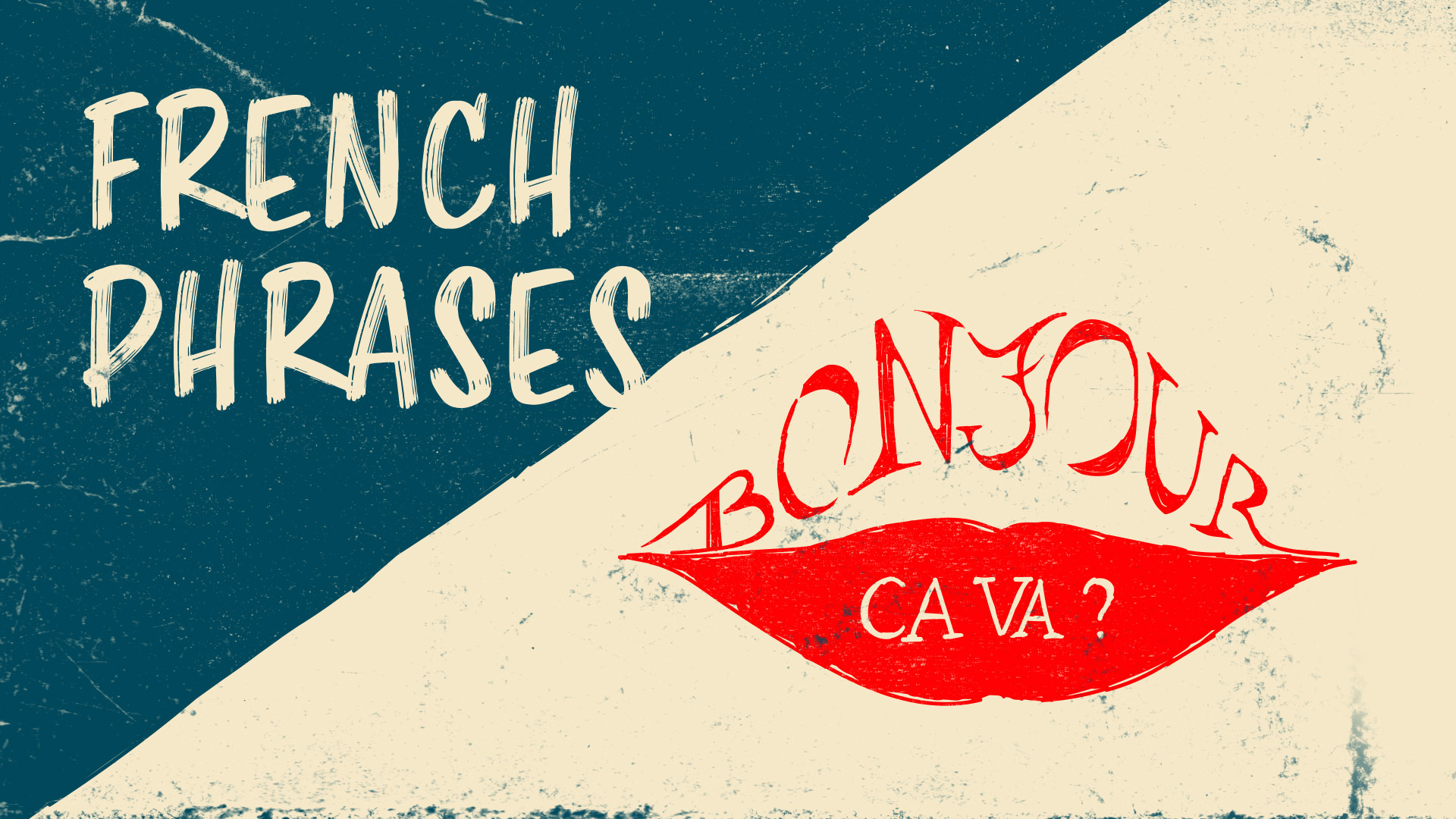
Full disclosure: This post contains affiliate links. ?
written by Benny Lewis
Language: French
Reading time: 17 minutes
Published: Jan 11, 2021
Updated: Sep 17, 2021
60+ Essential French Phrases for Beginners to Start Speaking Now
What are some French sayings? What are the most common phrases in French? And can learning a few powerful French phrases really help you start speaking right away?
Absolutely!
Even if you'll only be spending a short time in the country, learning a few basic French phrases can be very rewarding and make a big difference to your trip.
Let’s start by mastering some of the most common French phrases you need to know as a beginner:
I've long advocated that set phrases are the best thing for beginners to learn when starting out.
After all, isn't the goal of language learning to communicate?
How do you expect to communicate with anybody if the only thing you've learned so far is a verb table?
So whether you're planning to travel to Paris for a week or move to Saint-Louis-du-Ha! Ha! for the rest of your life, here are the most important and useful French phrases that you should learn A.S.A.P.
Listen to the French Phrases:
Here's a quick “French phrases” video I made that will help you with pronunciation for most of the phrases in this article:
Before we get started, if you’re looking for an online French course, here’s the course I recommend: French Uncovered – Learn French Through the Power of Story, a course with a fascinating new method by my friend Olly.
French Greetings and Polite Phrases
Bonjour – “hello”.
There are many ways in French to say “hello” , but bonjour is undoubtedly the most well-known. It's universally polite and friendly, whether the situation is formal or informal.
Bonjour is a combination of the words bon (“good”) and jour (“day”).
In the evening, you could also say bonsoir (“good evening”). A more casual way to greet people is salut , which can mean either “hi!” or “bye!”.
S'il vous plaît / s'il te plaît – “Please”
As a tourist, the last thing you want to be is rude. So when in France, remember what your mother taught you, and say s'il vous plaît (“please”) when making a request.
You can also say s'il te plaît. What's the difference? It's all about “you”:
In French there are two ways of saying “you”.
Tu is what you'd use when addressing a friend. Vous is a more polite and formal version, best used when talking to a stranger or older person.
( Vous is also what you should use when addressing a group of people in any situation, similar to saying “you guys” or “you all” in English).
So s'il vous plaît and s'il te plaît both mean “please” (literally, “if it pleases you”), but s'il vous plait is the more polite version. If in doubt, use s'il vous plaît .
(Why is it s'il te plait and not s'il tu plait ? It's a grammatical thing that you don't need to worry about as a beginner. Just learn the phrase as a whole for now, and things will become clear later.)
In fact, when asking for something in French – e.g. asking a stranger for directions or asking to see a menu in a restaurant, you should start with “ Bonjour. S'il vous plaît… ” It literally means “Hello, please…”, which would sound a bit strange in English, but it's the normal way to start a polite request in French.
Comment vous appelez-vous? / Comment t'appelles-tu? – “What’s your name?”
When meeting anyone, one of the first things you'll want to know is their name.
In French, you can find it out by asking “ Comment vous appelez-vous? ” (formal) or “ Comment t'appelles-tu? ” (informal).
Literally, these questions mean “what do you call yourself?”. You could also ask “ c'est quoi ton nom? ” – which is a more literal translation of “what's your name?”
If you're on the receiving end of this question, answer with “ Je m'appelle… ” (“my name is”, literally “I call myself”) or a simple “ Je suis… ” (“I am…”).
Oui/Non/Si – “Yes/No”
Two essential words to learn in any language are “yes” and “no”. In French, “yes” is oui and “no” is non .
Informally, it's also common to say ouais or ouaip instead of oui – like saying “yeah” or “yep” in English.
Then you have si . This is a handy little word that has no direct equivalent in English. Use it to say “yes” when someone asks you a negatively phrased question.
To illustrate what I mean, imagine that someone asks you, in English, “haven't you been to Paris?”
If you reply “yes”, it's not exactly clear what you're saying. Do you mean “yes, I have been to Paris – contrary to your assertion” or “yes, you're correct: I haven't been to Paris”?
French avoids this confusion with the word si . It means “yes”, but more specifically it contradicts the assertion in the question. In the above example, if you say si , it clearly conveys that you have, in fact, been to Paris.
Si is one of many linguistic features that I sorely miss when I speak English.
Comment allez-vous? – “How are you?”
This is the polite way of saying “how are you?” in French. Note the use of the polite vous rather than the informal tu .
Another, more informal way to say “how are you?” is ça va ? This phrase is extremely common – when in France you'll likely hear it several times per day.
If someone asks you “ ça va? ”, you can respond with a simple “ ça va bien ” – “it's going well”.
Excusez-moi – “Excuse me”
To get someone's attention, whether they're a waiter in a restaurant or a stranger on the street, say “ excusez-moi ”, “excuse me”.
This is also the polite way to ask someone to get out of your way. For example, if you're trying to exit a crowded train, a soft “ excusez-moi ” should (hopefully) be enough to make people step aside.
Pardon – “Sorry”
Picture getting off a crowded train, being careful you don't bump into anyone as you walk through the crowded metro station. But if a collision does occur, it's fine. Just say pardon , “sorry”, and all will be forgiven.
“ Pardon? ” is also how you'd ask someone to repeat themselves if you didn't hear or understand what they said. In this case, you should say it with a rising tone to indicate that it's a question.
Another way to say this is “ pourriez-vous répéter, s’il vous plaît ?” – “Could you repeat, please?”
Merci beaucoup – “Thanks a lot”
And of course, don't forget to say thank you!
The French word for “thank you” is merci . Or you can make it stronger by saying merci beaucoup – “thanks very much”.
Use merci in all the same situations you'd say “thank you” in English.
Other Must-Know French Greetings and Polite Phrases:
- Nice to meet you – Enchanté
- How’s it going? – Comment ça va?
- And you? – Et toi?
- Are you well? – Vous allez bien?
- What’s new? / What’s up? – Quoi de neuf?
- Good, thanks! – Bien, merci!
- So-so / It’s okay – Comme ci, comme ça (Literally: “like this, like that”)
- Same as always – Comme d’hab
- It could be worse – Ça pourrait être pire
- You’re welcome – Je t'en prie
- Don’t mention it / You’re welcome – De rien
- Goodbye – Au revoir
- See you soon – À bientôt!
French Phrases for Maintaining a Conversation
Je voudrais parler français – “i would like to speak french”.
The French are famously protective of their language. Sometimes they can be a bit impatient with us anglophones, and reply in English to your imperfect French questions.
It's frustrating when this happens, but if you ever want to make progress in a foreign language, you absolutely must stop speaking English !
Be polite but firm when someone tries to speak English with you – tell them “ Je voudrais parler français ” – “I'd like to speak French.”
Note that, unlike in English, names of languages are not written with a capital letter in French.

Je ne comprends pas – “I don’t understand”
Sometimes pardon doesn't quite cut it. If you really can't figure out what the other person is saying, try telling them “ je ne comprends pas ” – “I don't understand.”
There's no shame in being a beginner! Just remember not to fall back to English when the going gets tough. If you don't understand something, persevere in French anyway – it's the only way you'll learn.
Que veut dire ça? – “What does that mean?”
Maybe the reason you didn't understand is because there was a specific word you didn't recognise. If that's the case, say “ que veut dire X? ” – “What does X mean?”
You can also phrase this as “ ça veut dire quoi? ” – “What does that mean?”
Plus lentement – “More slowly”
Sometimes, vocabulary isn’t the problem. You’d know the words if you could make them out, but you can't because the other person is talking too fast!
In this case, try saying plus lentement – “more slowly”.
Better yet, say a full sentence: “ Pourriez-vous parler plus lentement, s’il vous plaît? ” – “Can you speak more slowly, please?”
Comment dit-on __ en français? – “How do you say __ in French?”
What if you need to say something in French, but the exact word escapes you?
Just fill in the blank in the above sentence: “ Comment dit-on X en français? ” means “How do you say X in French”?
A side note: the pronoun on , seen above, is an interesting one. It’s a colloquial alternative to nous (“we”). However, on is also used to refer to an unspecified person or people in general, like the word “one” is sometimes used in formal English. (If you speak German, note that on in this sense is like the German word man .)
One doesn't use the word “one” very much in modern English – one finds it rather old-timey and stuffy. These days you normally use “you” when you're talking about people in general.
Comment ça s'écrit? – “How do you spell that?”
If you learn a new French word using the phrase above, you might want to write it down before you forget it.
Unfortunately, French spelling isn't the easiest.
The relationship between spelling and French pronunciation can be complicated. Generally, it's easier to figure out a word's pronunciation from its spelling than it is to know its spelling from its pronunciation. I wrote a guide to help you with French pronunciation here .
So if you're not sure, ask someone “ comment ça s'ecrit? ” – “How do you spell that?” Literally: “How does that write itself?”
Or if you don't trust your own transcription abilities, try asking them to write it for you: say “ Est-ce que vous pouvez l'écrire? ” – “Can you write it (down)?”
Other Helpful Phrases for Maintaining a French Conversation:
- Can you speak more slowly please? – Pouvez-vous parler plus lentement s'il vous plaît?
- Can you say it one more time? – Pouvez-vous le dire une fois de plus?
- Do you speak French? – Parlez-vous français?
- Do you understand? – Comprenez vous?
- What do you do for a living? – Qu’est-ce que tu fais dans la vie?
- How old are you? – Quel âge as-tu?
- I’m _ years old – J’ai _ ans
- Where are you from? – D'où êtes-vous?
- I’m from… – Je viens…
- Are you married? – Es-tu marié?
- Are you single? – Es-tu célibataire?
- When can we meet? – Quand pouvons-nous nous rencontrer?
- What’s your phone number? – Quel est ton numéro de téléphone?
French Phrases for Getting Around
Où est… – “where is…”.
Struggling to find your way around? Not to worry. Just get a stranger's attention (remember what phrase would you use to do this?) and ask “ où est X ” – “Where is X?”
“X” could be many things: la Tour Eiffel, le Louvre, Notre Dame … or perhaps something less exotic, like le metro or un restaurant .
Où se trouve la station de métro la plus proche? – “Where is the closest metro station?”
Another way of saying “where is it?” is où se trouve , literally “where is (it) found”.
Here's an example of où se trouve combined with another handy phrase to know: la station de métro la plus proche means “the closest metro station”.
One more piece of useful vocabulary: once you're in the metro station, you might want to ask someone “ où est le guichet? ” – “Where is the ticket window?”
Je voudrais acheter un billet – “I would like to buy a ticket”
Now that you've found the guichet , you probably want to buy a billet – a ticket. But what type of ticket do you want?
- un billet aller simple – a one-way ticket
- un billet aller retour – a round-trip ticket
Make your decision, and tell the assistant “ je voudrais un billet aller simple/retour pour X ” – “I would like to buy a one-way/round-trip ticket to X”, where X is your destination.
C'est combien? – “How much is it?”
France isn't the cheapest of countries – so whether you're at the guichet or elsewhere, it doesn't hurt to be price-conscious.
To ask how much something costs, say “ c'est combien? ” – “how much is it?” You can also say “ Combien ça coûte? ” – literally, “how much does it cost?”
Où sont les toilettes? – “Where are the toilets?”
It's worth learning this phrase, because you might need it in a hurry! Où sont les toilettes means “where are the toilets?”
Although if you want to use a public toilet, you could be searching for a long time.
They aren't very common in France – and if you do find one, you'll probably have to pay to use it. You're probably better off buying something in a café and using their toilets instead.
(Why is it “ où sont “, when previously we used “ où est “? Easy: sont means “are” while est means “is”. Since toilettes is plural, you must use sont , not est – “where are the toilets?”, rather than “where is the toilets”, which wouldn’t make sense.)
À quelle heure est-ce qu’il faut régler la note? – “What time is check out?”
If you're checking into a hotel in a French-speaking country, one useful thing to know the checkout time.
One way to find this out is to ask “ à quelle heure est-ce qu’il faut régler la note? ” – “What time must we check out?”
Another similar expression is: “ quelle est l'heure limite d'occupation? ” (Lit: “What is the occupancy cut-off time?”
La carte/le menu, s’il vous plaît. – “The menu, please.”
France is famous for its food, so while you're there, you'll probably want to dine in a restaurant or two!
When dining out in any language, there are usually a few subtleties around how to order. Here I'll explain one of the more important things to know in French: the words for “menu”.
I say “words” because there are two main ways to say “menu” in French.
The general word is carte , which you may recognise from the expression à la carte .
A carte is what you typically think of when you hear the word “menu”. It's a list of individually-priced options; you pick and choose what you want, then add up the prices to get your total bill.
But you can also ask for a menu , which is usually called a “fixed-price menu” in English. When ordering from a menu , you pick an option for each course (starter, main course, etc.) and pay the same, fixed price no matter what you selected.
Whichever option you choose, inform the serveur/serveuse (“waiter/waitress”) by saying “ la carte/le menu, s’il vous plaît ” – “the menu/fixed-price menu, please.”
Je ne peux pas manger… – “I can’t eat…”
This doesn't apply to everybody, but for those to whom it does apply, it's very important: informing the waiter about your dietary restrictions.
The simplest way to do this is to say “ je ne peux pas manger de X ” – “I can't eat X”. Here are some of the more common ways to fill in the blank:
- cacahuètes – peanuts
- noix – nuts
- gluten – gluten
- fruits de mer – shell fish
- œufs – eggs
- poisson – fish
- produits laitiers – dairy products
- viande – meat
If you're vegetarian, say so with “ je suis végétarien ” (for men) or “ végétarienne ” (for women.)
A vegan is a “ végétalien(ne) “, although végan/végane is sometimes used too.
You could also explain “ je ne consomme pas de produits animaux .” – “I don't consume animal products”
Nous voudrions commander maintenant. – “We would like to place an order now.”
To “order” in French is commander , when you're talking about ordering something in a restaurant.
Don't confuse this with ordonner , which is used in the sense of “to order a person to do something”, such as in the military.
After receiving the carte or the menu , and perhaps informing the waiter of your dietary restrictions, you may be given some time to make a decision. When you're ready, say “ nous voudrions commander maintenant ” – “we'd like to order now.”
It’s also acceptable in nearly any restaurant to use on instead of nous for we, as I mentioned earlier: On voudrait commander maintenant.
Or if you're by yourself, say je voudrais (I'd like) instead of nous voudrions (we'd like). Bon appétit!
L’addition, s’il vous plaît. – “The bill, please”
One final bit of restaurant-related vocabulary – the bill (or “check” if you're American) is l'addition .
So when you're ready to leave, say l’addition, s’il vous plaît – “the bill, please”.
You’ll often hear la facture used in Quebec instead of l’addition – however both are perfectly understandable to waitstaff.
Other French Phrases for Out and About in France:
- Can you help me please? – Pouvez-vous m'aider s'il vous plaît?
- I would like… – Je voudrais…
- I’d like one of those please – J'en voudrais un s'il vous plait
- Three: Trois
- Four: Quatre
- Five: *Cinq
Learn more: French Numbers: Counting in French from 1 – 100+
Romantic French Phrases
Je t'aime – “i love you”.
Finally, let’s talk about love.
They say that French is a romantic language, so maybe in your travels you'll find love on the road? Or maybe after you get home, you'll want to use your newfound French skills to woo that special someone.
So how do you say “I love you” in French?
The French word for “to love” is adorer – but you generally only use this word when talking about things rather than people, for example to say that you love a place, book, or song.
When talking to a person, say je t'aime . Aimer usually means “like”, but in this context it means “love” in the most romantic of senses. Use it wisely!
Here are some other romantic French phrases:
- My heart – Mon cœur
- My love – Mon amour
- You’re beautiful – Tu es belle (to a woman); Tu es beau (to a man)
- You’re too cute – Tu es trop mignon
- I like you (Lit: “You please me”) – Tu me plais
Bonus: French Slang
Wondering what a famous French saying is that you could use in everyday life? Or how do you say “cool” in French slang?
Here are some bonus French sayings and slang to level up your French:
- Cool – Cool (yes, really! Just say it with a French accent 😉)
- Awesome – Génial
- That sucks – C’est nul
- That’s great – C’est top
- Don’t worry – T'inquiète
- Losing my mind – Perdre la tête
Over to You
Can you think of any other useful French phrases for tourists? What are the most important words and phrases for beginners to know? Let us know in the comments.
And if you’re ready to learn more French, check out the 111 core French words that are commonly used. Or learn some more fun French slang !
Benny Lewis
Founder, Fluent in 3 Months
Fun-loving Irish guy, full-time globe trotter and international bestselling author. Benny believes the best approach to language learning is to speak from day one .
Speaks: Spanish, French, German, Italian, Portuguese, Esperanto, Mandarin Chinese, American Sign Language, Dutch, Irish
Have a 15-minute conversation in your new language after 90 days
60+ French Phrases for Travel You Need to Know [PLUS Printable]
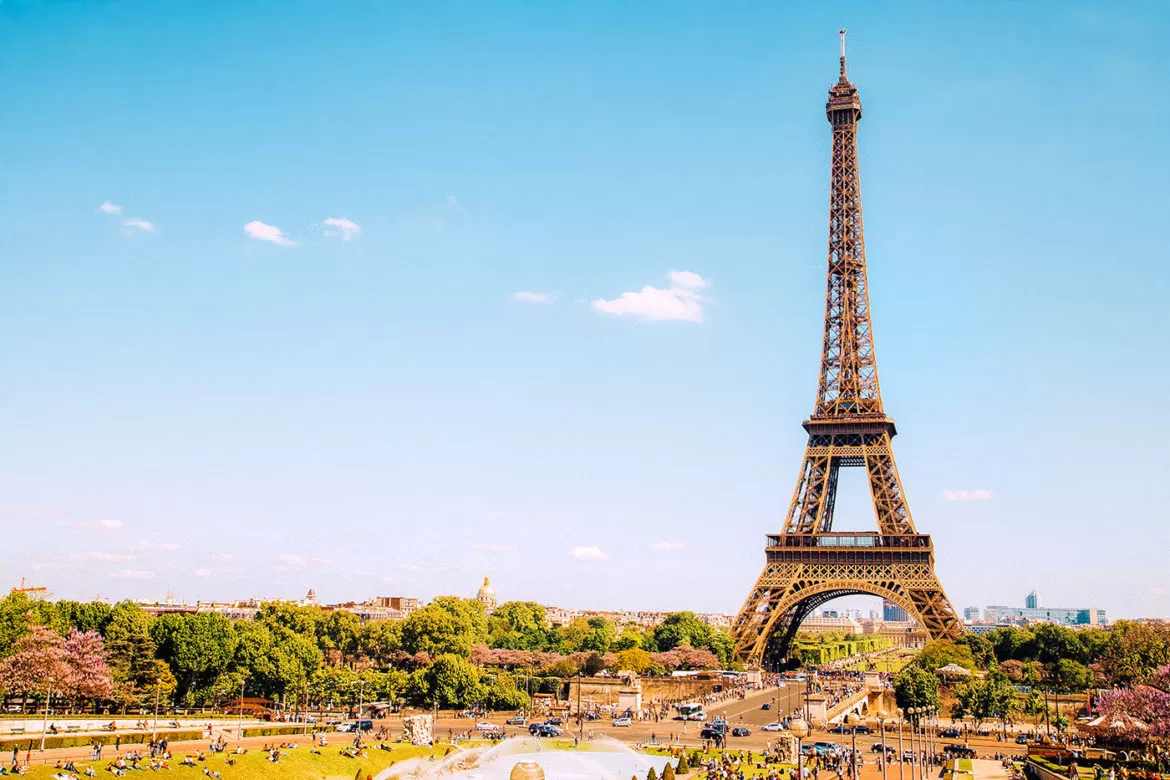
Order your petit-déjeuner (breakfast) or buy your billets (tickets) to the Louvre all in French! Here are the most useful French phrases for travel you need to know.
Learning some French will offer you further insight into the French culture, mentality, and way of life. The ability to speak even un peu français (a little bit of French) and avoid making these French faux pas will enhance your travel experience and open the doors to unique connections with the locals.
France is the world’s top tourist destination, attracting more than 79,5 million visitors a year! That’s why French is the next language in my travel phrase guide series.
Not only that, but speaking French also comes in handy when travelling to Africa, Switzerland, Canada , Monaco, French Polynesia, the Seychelles amongst other places.
Why else should you learn French? Well, it makes learning other languages, especially Romance languages like Spanish , Italian , Portuguese and Romanian much easier.
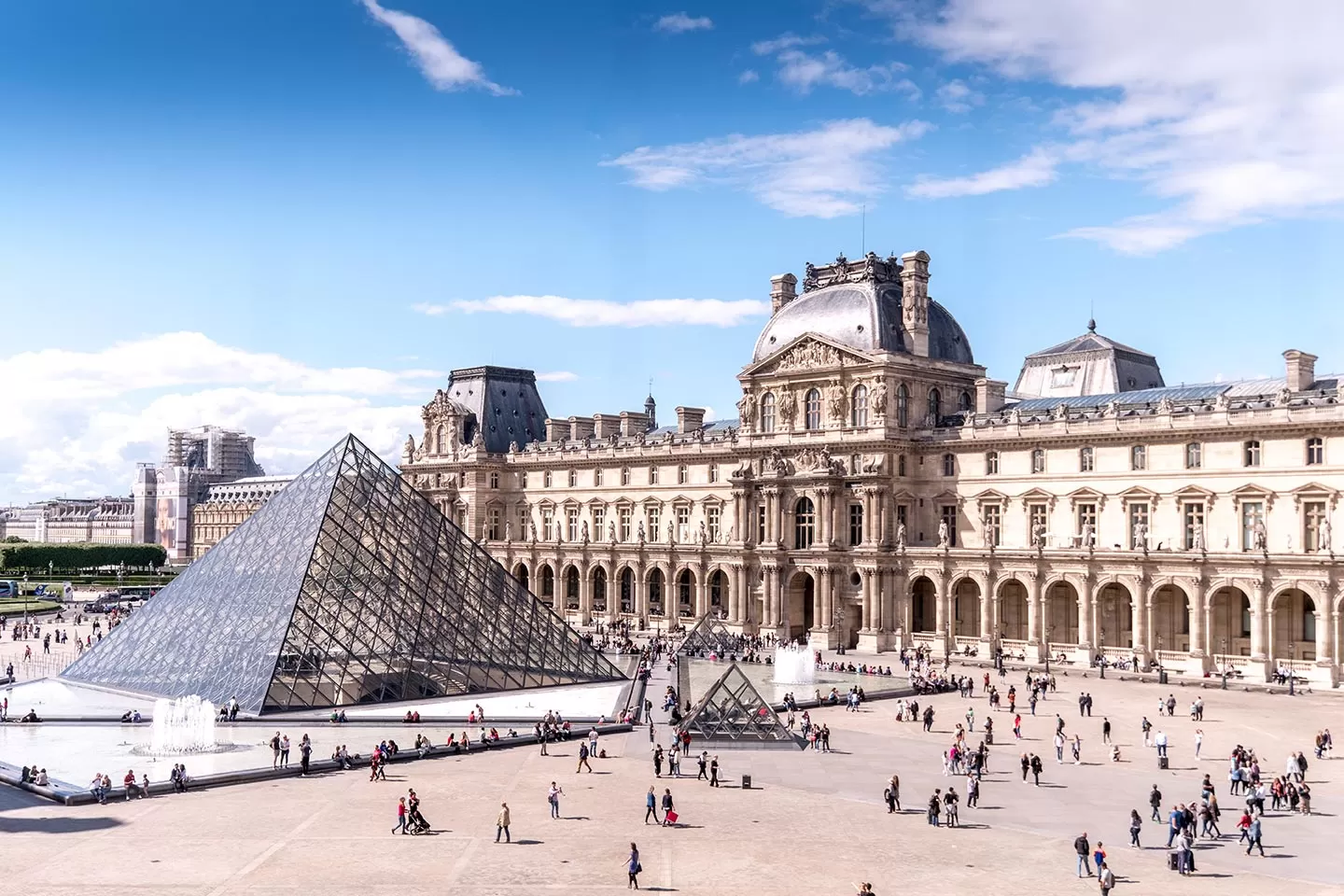
Want to have fun whilst learning French? Struggling to find decent French language resources? I recommend getting uTalk . Available as a desktop site and app, uTalk is awesome for learning key words and phrases in French especially if you want to use it for travel purposes. It’s great for beginners getting started in a language and invaluable for intermediates looking to fill in gaps in their vocabulary and pronunciation.
What I love most about uTalk is that you can jump around their extensive library of topics and choose what you want to learn, when you want, and at your own pace. Because I believe in uTalk so much, I reached out to them and we’ve teamed up to offer you an exclusive 30% OFF reader discount across all of uTalk’s 140 languages! This offer isn’t available anywhere else! Click here to claim your exclusive 30% discount.
Let’s take a quick look at the French language so you’re a bit more clued up on its origin, use, and vocabulary.
I hope you enjoy this post as much as I enjoyed bringing it together. If you have any requests for other languages, let me know in the comments section!
Where is French spoken?
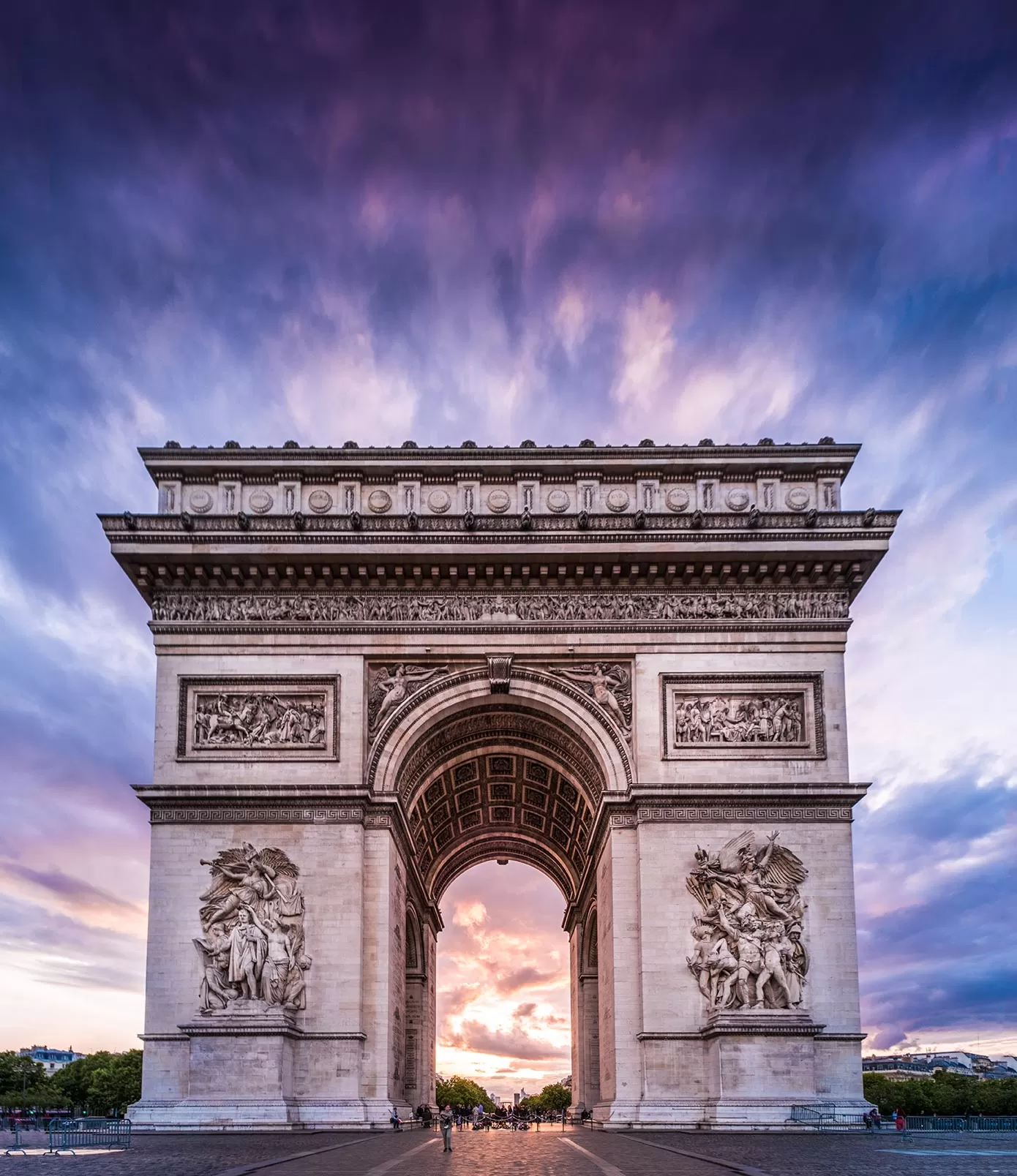
That’s a lot of Bonjour -ing!
French is the third most spoken language in Europe, after German and English and has official-language status in 29 countries, including: Belgium , Benin, Burkina Faso, Burundi, Cameroon, Canada , Chad, the Ivory Coast, the Democratic Republic of the Congo, Djibouti, Equatorial Guinea, France , Haiti, Luxembourg, Madagascar, Mali, Monaco, Niger, Rwanda, Senegal, Seychelles, Switzerland , Togo and Vanuatu. French is even one of six official languages of the United Nations.
It seems like nearly everyone wants to learn French, it’s the only language, alongside English, that is taught in every country in the world!
And the best way to learn it? Well, France operates the biggest international network of cultural institutes, which run French-language courses close to a million learners. My two favourite ways to learn French is by attending language classes – so I’m not only held accountable but also for the social aspect – and going on language holiday too!
A Brief History of the French Language
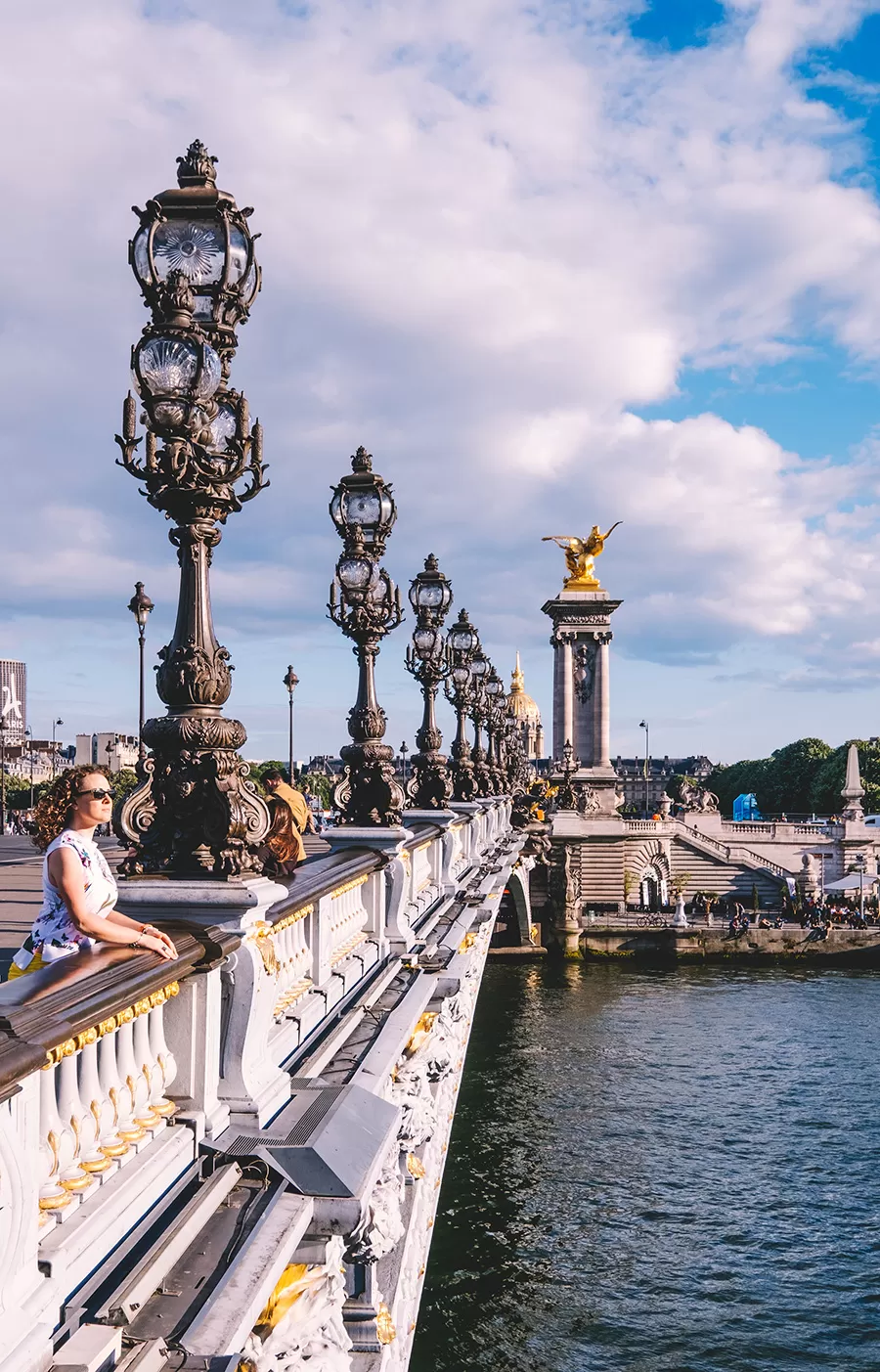
The French and English languages have a pretty mixed-up history. Following the Norman Conquest of 1066, Norman French was adopted as the language of power on the British Isles.
For the next 400 years, French was the language of the nobility and of most official documents. King Henry V put a stop to that when he went to war with France, but because the two languages existed in parallel for so long, the English language is peppered with words of French origin, many of which can be traced back to French roots. This means that you actually already know a lot of French, even if you don’t think you do.
Now for the tricky stuff!
French Pronunciation Tips
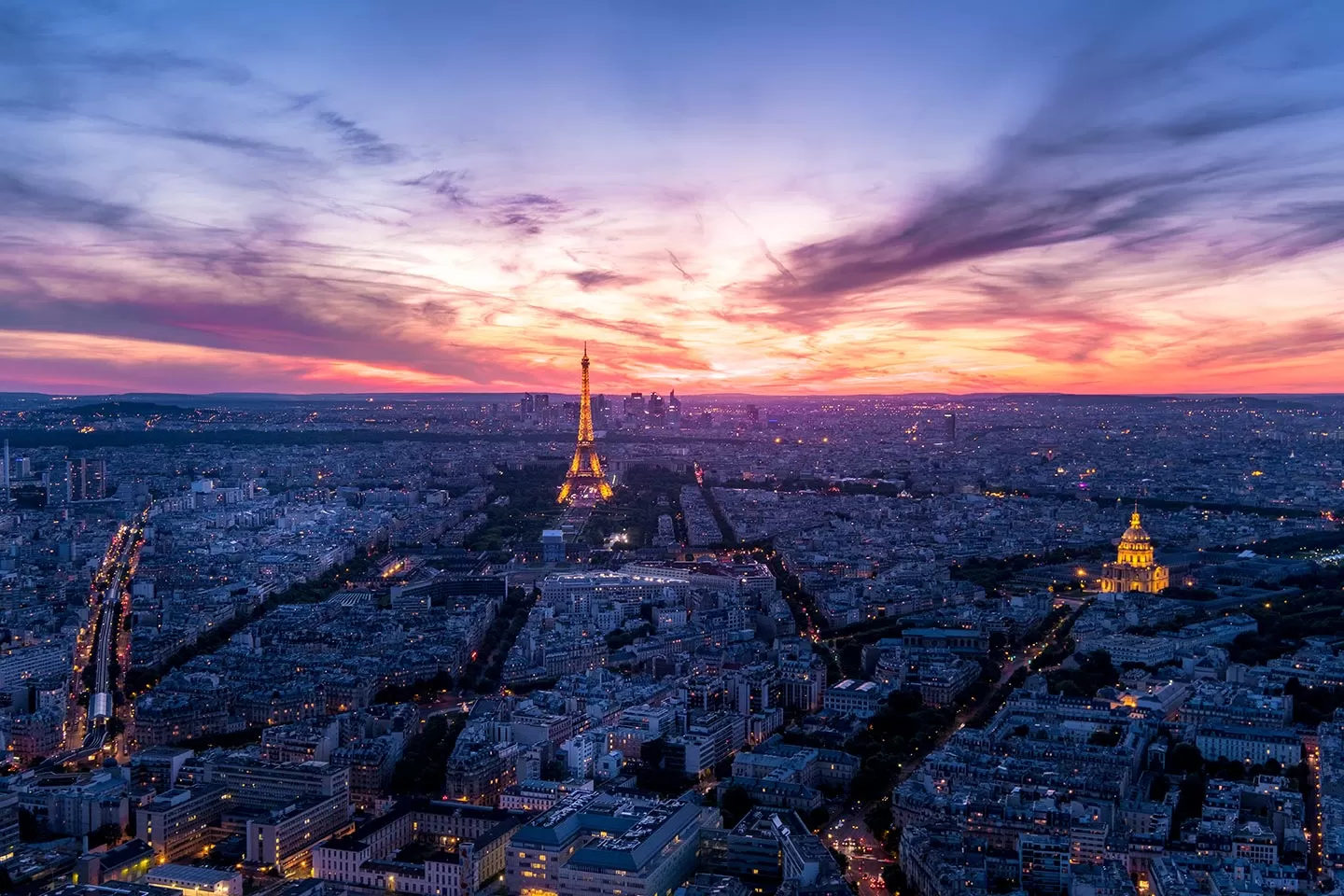
There is a total of 26 letters in the French alphabet. Standard French contains 13 oral vowels and up to 4 nasal vowels, but there are 5 additional accented letters that can be applied to change the sound of a letter.
Here are some helpful pronunciation tips:
Using Liaisons
One of the fundamental rules of pronouncing French (and many other Latin-based languages) is that everything has to flow. That’s one of the reasons why French sounds so beautiful.
If you’re speaking French correctly, everything should sound like a continuous melody.
That’s where liaisons come in.
Liaisons are a phonetic link between two words that may sound awkward if left unconnected.
Let’s take a look at some examples where they are used when speaking:
- After pronouns e.g. vous avez sounds like vooz-ah-vey not voo ah-vey
- Numbers and nouns e.g. deux amis sounds like derz-ah-mee not der ah-me
- One syllable prepositions e.g chez eux sounds like shez-uur not sheh uur
And liaisons that are forbidden when speaking:
- When using full names e.g.
- After et (and)
Liaisons may seem complicated at first, but they will become easier the more you listen to spoken French. After a while, you’ll automatically be able to notice where a liaison is needed (and where it isn’t) and how to make it sound natural when speaking.
What Not to Pronounce in French
Much like English, the French language isn’t written phonetically. The same sound can be represented by several different combinations of letters, and there are many cases of silent French letters. Two of the most well known are the silent “e” and the silent “h.”
The Silent “e”
The letter “e” is often silent in French, especially at the end of a word. Here are some examples:
Rue (road/street) is pronounced roo not roo-ee and inacceptable (unacceptable) is pronounced an-ah-sep-tah-bil not an-ah-sep-tah-ble
Of course, there are exceptions when it comes to masculine and feminine adjectives and nouns.
In the case of feminine adjectives and nouns, this typically means that the final consonant of the masculine form will now be pronounced. So, the masculine ouvert , meaning open in the masculine form and pronounced oo-ver , will become ouverte in the feminine form and pronounced oo-vert . The ‘ e ’ makes the final letter sounded.
The Final Consonant
As you’ve probably already noticed, there are a tonne of French letters that simply aren’t pronounced at the end of words. Don’t worry, you’ll get used to it!
In French, silent letters, or lettres muettes , have rules and exceptions just like many other linguistic concepts.
In general, the final consonants of a word are usually silent in French except in some cases of the letters c, f, l or r .
Just remember this simple rule, the consonants in the word ‘ careful ’ are always pronounced.
For example,
Avec (with) is pronounced ah-ve k
Cinq (five) is pronounced saan k
Hiver (winter) is pronounced ee-ve r
The general rule regarding French word endings is that when in doubt, you probably don’t pronounce it. But, French is full of exceptions!
The Infamous “r”
For many English speakers, the French “r” can be a source of frustration. To pronounce it, you’ll need to use your throat and imagine you’re trying to gargle. The French “r” is pronounced in the same place as the English “k”, but with your throat closed.
The Silent “h”
As you’ve probably noticed from every French speaker’s failed attempt to say the word “hamburger” in English, the “h” in French is a silent letter no matter where it’s located in a word.
The only exception to this is when the preceding letter is “c,” in which case the “ch” combination makes a “sh” sound or “k” sound.
Here are a few examples of the silent “h”:
Le haricot vert (French bean) is pronounced leh ah-ree-coh ver
Huit (eight) is pronounced weet
Hiver (winter) is pronounced ee-ver
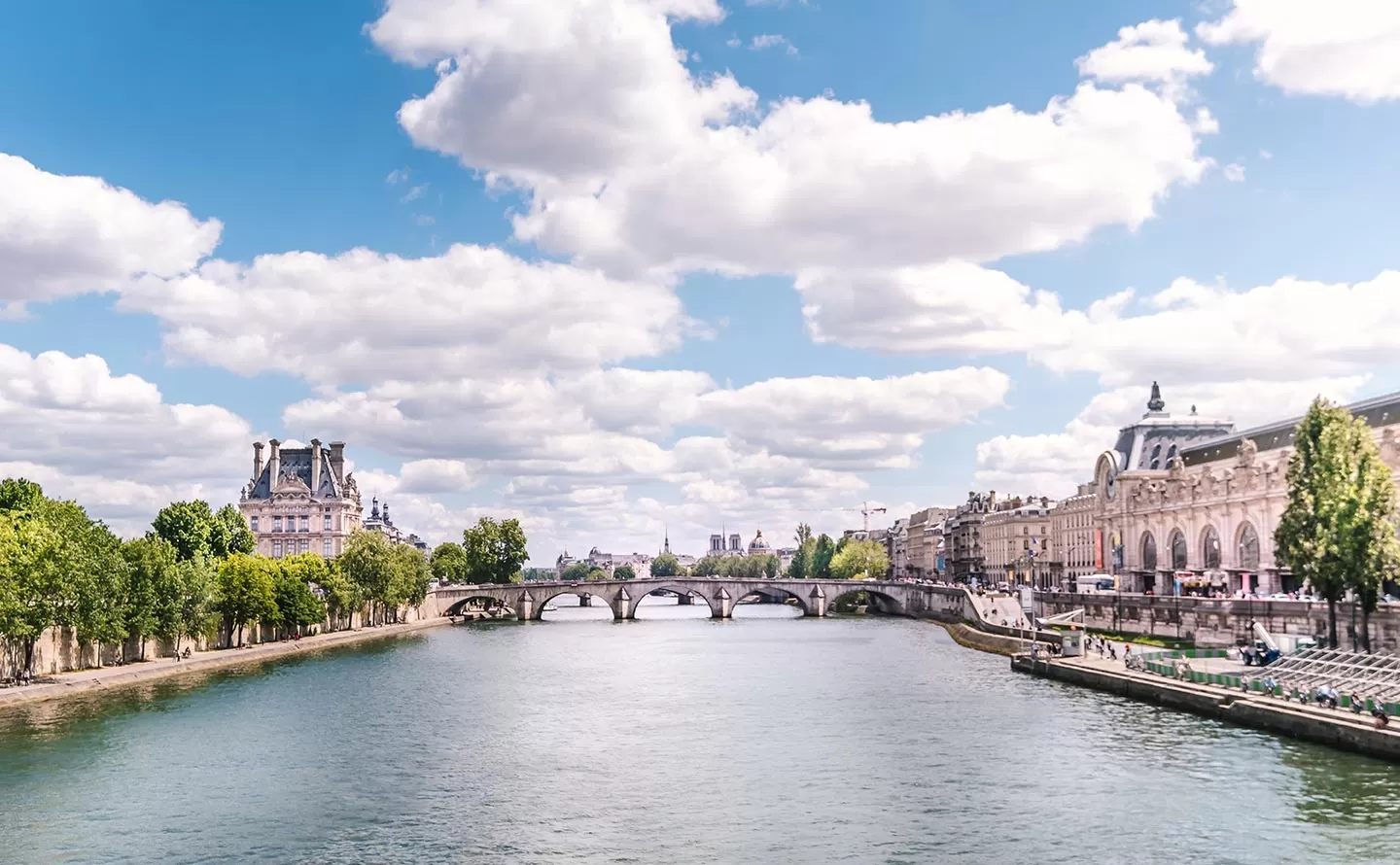
Admittedly there are a few finicky grammar rules to learn, but generally speaking, English grammar corresponds relatively closely to French grammar.
Consider words in English that end with – ible and -able , these are the same in French, only the pronunciation changes. So, the French word ‘possible’ sounds like poss-ee-bleh and ‘comfortable’ becomes kom-for-tah-bleh .
Then we have English words ending in -ent and -ant which also come from French and have the same spelling and the same meaning. So, the word, différent sounds like diff-er-ohnt and important sounds like ahm-poor-tahnt . The ‘t’ at the end is just slightly sounded.
Had enough? Ok, one more! Words in English ending in -ary l ike contrary become -aire in French. So, ‘contrary’ becomes contraire and sounds like kon-trair .
There are so many rules like this, so you can see just how easy learning French can be.
Here are top 10 French Italian Phrases for Travel You SHOULD Know [& How to Use Them]
Top french phrases for travellers.
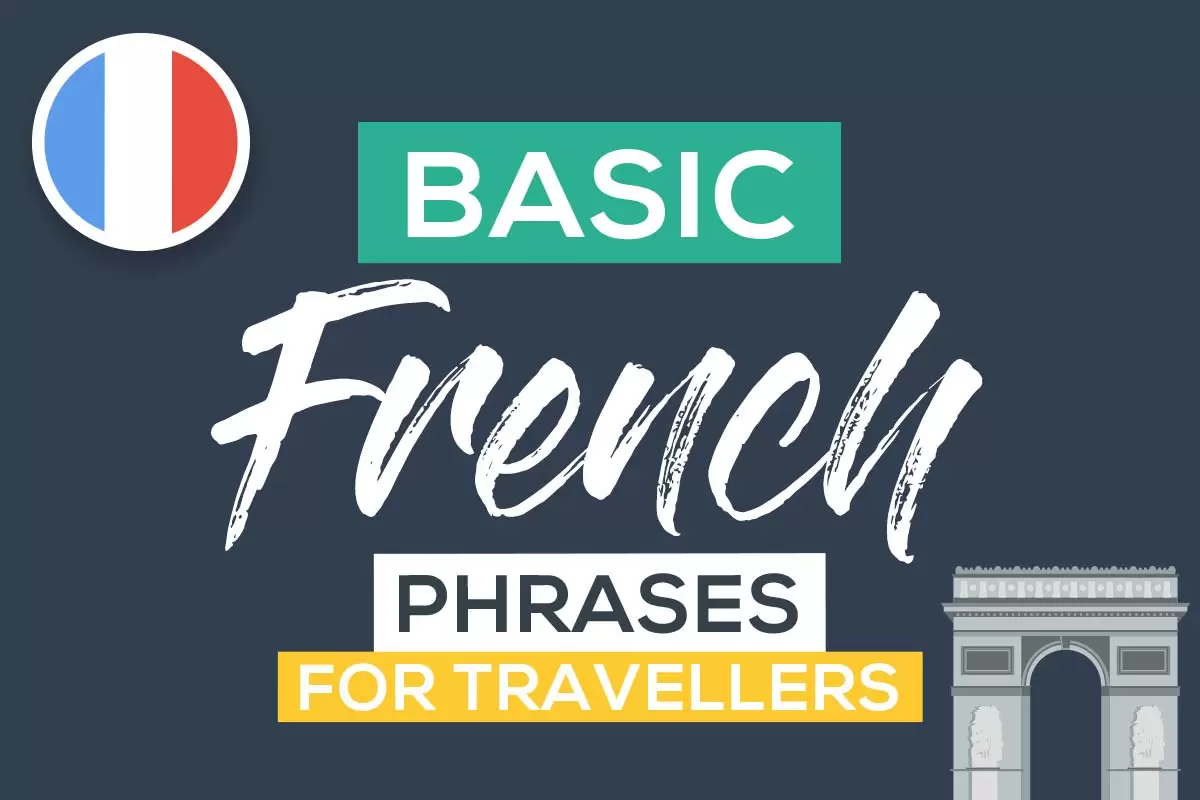
Want the infographic to take with you? Scroll to the bottom of the page.
Greetings Essentials Questions Eating Out Getting Around Numbers Days Emergencies
**There are a few places that use unique words for the numbers 70 ( septante ) and 90 ( nonante ), such as Belgium and Switzerland. With the numbers 80 to 89, combine the number 4, the number 20, and the ones.
For example, in French 80 is four 20s, 81 is four 20s plus 1, and so forth. (Unlike most French-speaking countries, Switzerland actually has a word for the number 80. It’s huitante .)
Want more? Learn French with me, with Intrepid French!

Travelling to France? Don’t be treated like a tourist! Live your best travel experiences and learn France for less than the cost of eating at a tourist trap restaurant or a taxi driver who has “taken you for a ride”. In addition to my free French travel phrase guide , I’ve made it even easier for you to master the French language so you can create lifelong memories as you mingle with locals , get local tips , avoid tourist traps , and make new friends . Join my popular French course here.
Here’s what my students are saying:

Loved it, loved it, loved it. I’ve been trying to learn languages using various language learning apps for years now and although I know random words I feel no more confident in actually speaking the language than I was when I started.” – Basil Pereira
Click here more details and get instant access!
Have a laugh with these funny French expressions
Like it? Pin or download this French travel phrase guide

Like it? Pin it for later!
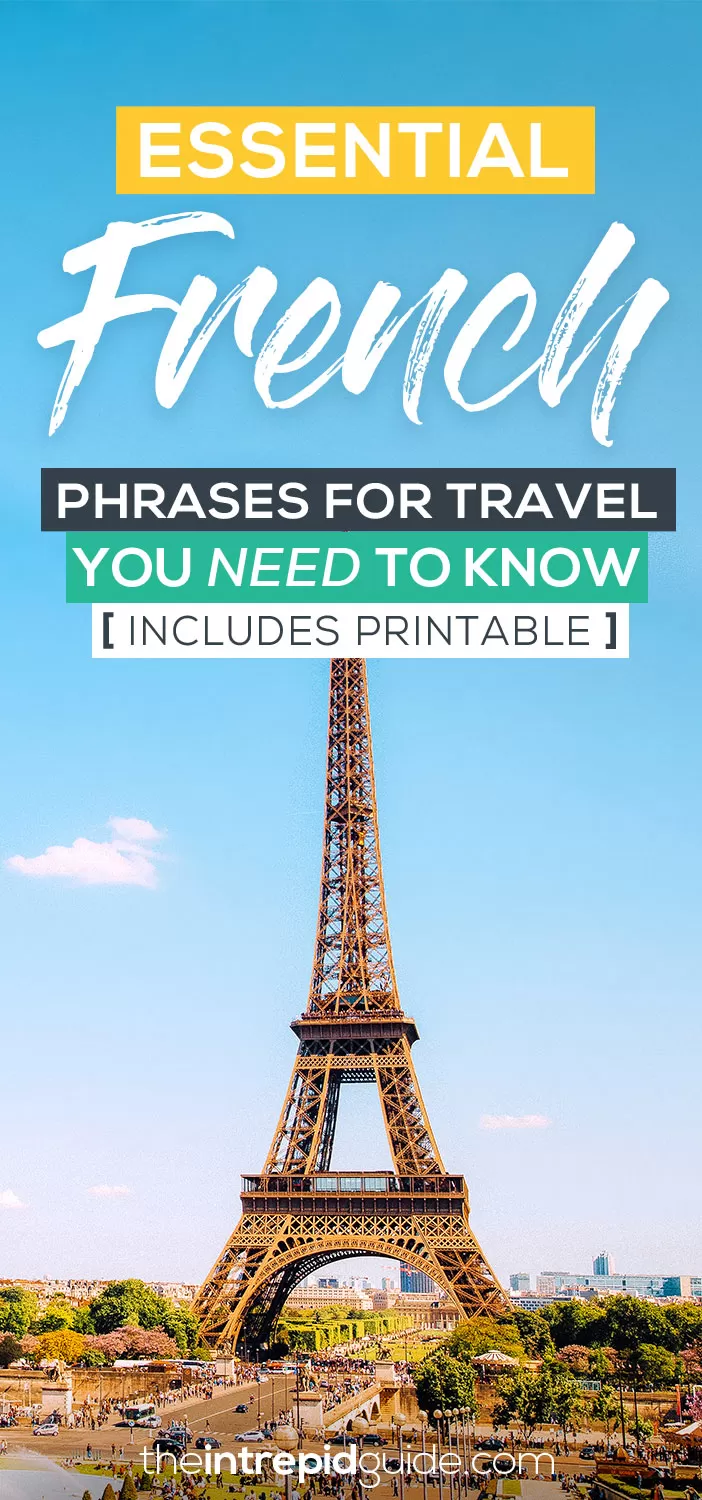
Learning French? Check out these French language guides
- Top 10 French Phrases You Should NEVER Say [& What to Use Instead]
- How to Sound More French: Top 10 French Phrases the French Love Saying
- How a ‘potato’ improved my French pronunciation
- 25 Funny French Idioms Translated Literally
- 22 Most Common French Grammar Mistakes [& How to Avoid Them]
Want to know more about learning languages? Start here!
- 6 Language Learning Tips: How to Learn a Language from Home
- What Type of Language Learner Are You? Your 4-Step Personalised Learning Plan
- 15 Top Language Learning Resources You Should Use
- 44 Best Movies on Disney Plus for Learning Languages
- 13 Ways to Seamlessly Integrate Language Learning into Your Daily Life
- 10 Pro Tips: How to Learn a Language with a Full-Time Job
- 7 Reasons Why You Should Go on a Language Holiday
- Essential Travel Phrases: How to be Travel Fluent in 10 Simple Steps
- 23 Cool Gift for Language Learners They Will Actually Use and Love
- How to Learn Your First Foreign Language in 8 Simple Steps: A Beginner’s Guide
- 11 Life-Changing Reasons Why You Should Learn a Language
- 42 beautiful Inspirational Quotes for Language Learners
- Language learning tips: 11 Polyglots Reveal The Secrets of Their Success
- Top 10 Best Ways to Learn a Language Better and Faster
- How Many Languages are there in the World?
Don’t miss my France Travel Guides
- How to Spend 4 Days in Paris: Ultimate First Timer’s Guide to Paris
- Where to Stay in Paris: A Fairytale Stay at Hotel Trianon Rive Gauche [Hotel Review]
- Where to Stay in Paris: A Decadent Stay at Hôtel Thérèse [Hotel Review]
Over to you!
Which of these French phrases are the most useful? What other languages would you like a travel phrase guide for? Have you been to a French-speaking country? Let me know using the comments section below or join me on social media to start a conversation.
Thanks for reading and I hope you enjoyed this post.
Like what you see? Subscribe using the form below to have all of my posts delivered directly to your email.
Success! Now check your email to confirm your subscription.
There was an error submitting your subscription. Please try again.
Get my best language and travel tips FREE by email...
Subscribe to my newsletter to receive detailed travel guides, exclusive travel and language learning tips, priority access to giveaways and more!
I will never give away, trade or sell your email address. You can unsubscribe at any time.
Michele creates language learning guides and courses for travel. What separates her from other instructors is her ability to explain complex grammar in a no-nonsense, straightforward manner using her unique 80/20 method. Get her free guide 9 reasons you’re not fluent…YET & how to fix it! Planning a trip? Learn the local language with her 80/20 method for less than the cost of eating at a tourist trap restaurant Start learning today!
Blond or Blonde: Why Does Grammatical Gender in English Still Exist?
How to sound more french: top 10 french phrases you should use.
This is great. I took years of French when in school, 40-years ago and now want to re-learn and be able to get by when traveling. Merci
Hi! (Sorry for the Failures, I don’t speak english very well because I am french) My Name is Salomé and I am from France. I felt random on your Website and I watched you tables and the picture called ” French travel Cheat sheet “. What you’re doing is awesome because you help people open us to the World. I am proud of what you do. I want to help because I am a native speaker of French not of all the French (Canada, Belgium..) but from France. Salomé
Hey Michele, love the article, love the guide. I think there are some mistakes on the French spelling and pronuciation for the word Right.
Right =droite drrrwa (with the funny r for the French). Apart from that, what a precious website!! Well done!
Hi Monique, thank you for correcting this typo, I’ve just fixed it now 🙂
Hey Michele
This is so cool. Thanks for sharing it. I was I Paris about a month ago and these would have come in very handy. Keep up the good work.
Merci Au revour
Thanks Basil, I’m so glad you enjoyed this post. I hope you’ll find it useful for future travels in Francophone countries 🙂
Leave a Comment Cancel Reply
Save my name, email, and website in this browser for the next time I comment.
This site uses Akismet to reduce spam. Learn how your comment data is processed .

If you don't know where you are , how do you know where you're going? Find out how well you know Italian grammar today!
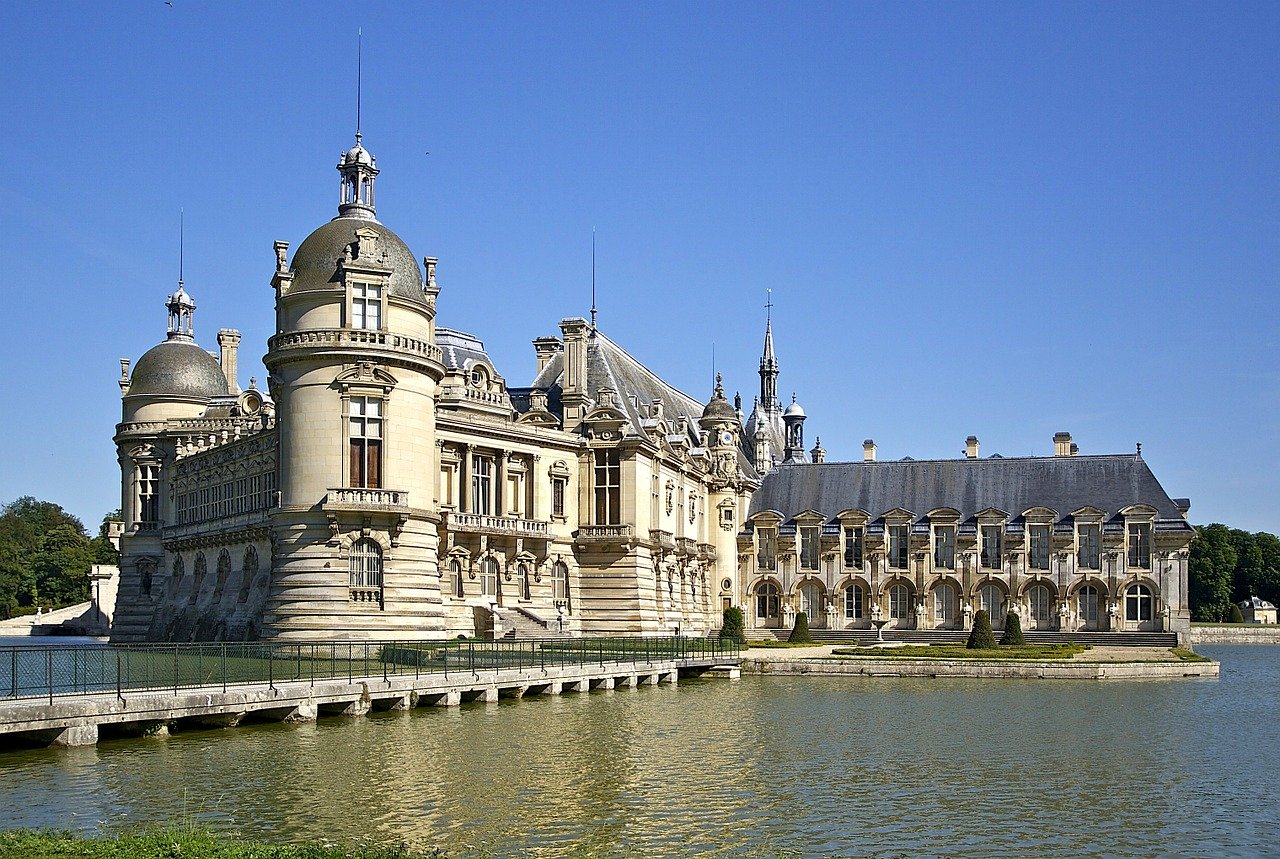
Bon voyage ! Have a Great Trip! Travel Phrases in French
- Post author: Language Garage
- Post published: August 18, 2020
- Post category: French / Travel / Vocabulary
In this post we’ll look at a lot of French vocabulary and expressions that will come in handy when you travel. Let’s start with the basics.
Ma valise My Suitcase
Before you travel, you of course need to pack. So let’s start there.
- la valise suitcase
- J’ai besoin de faire ma valise. I need to pack my suitcase.
- Ma valise est lourde/légère/pleine/vide. My suitcase is heavy/light/full/empty.
- Mes affaires ne rentrent pas dans ma valise. My clothes don’t fit in my suitcase.
- J’ai besoin d’un autre sac/d’une autre valise. I need another bag/suitcase.

À l’aéroport At the Airport
If you’re traveling, you’re probably going to leave from and arrive at an airport.
- un billet d’avion, une carte d’embarquement, un passeport, un vol plane ticket, boarding pass, passport, flight
- les arrivées, les départs, la porte, le retrait des bagages arrivals, departures, gate, baggage claim
- le contrôle des passeports, la douane passport control, customs
- J’ai besoin d’enregistrer mes bagages. I need to check my luggage.
- J’ai un bagage à main. I have a carry-on bag.
- Quand part le vol ? When does the flight leave?
- L’avion décolle à quelle heure ? What time does the plane take off?
- Il y a une longue file d’attente à la sécurité. There’s a long line at security.
- L’embarquement est dans dix minutes. We’re boarding in ten minutes.
- siège côté hublot/fenêtre, siège côté couloir, siège du milieu window seat, aisle seat, middle seat
- le pilote, l’hôtesse de l’air (f.), le steward (m.) pilot, flight attendant
- Veuillez attacher vos ceintures. Please fasten your seatbelt.
- Veuillez éteindre vos (téléphones) portables. Please turn off your cell phone.
- Combien de temps dure le vol ? How long is the flight?
- Nous atterrissons dans dix minutes. We’re landing in ten minutes.
- On doit passer à la douane et au contrôle des passeport. We need to go through customs and passport control.
- Où se trouve le retrait des bagages ? Where’s the baggage claim area?
- Où se trouvent les taxis ? Where are the taxis?
- Y a-t-il un train/un bus pour aller en ville ? Is there a train/bus to the city?
- J’ai besoin de changer de l’argent. I need to exchange money.
À l’hôtel At the Hotel
You’ve finally arrived, so let’s get you settled in your hotel room.
- Où se trouve l’hôtel ? Where is the hotel?
- J’ai une réservation au nom de ______. I have a reservation under the name ______.
- Où est l’ascenseur ? Where’s the elevator?
- À quel étage se trouve ma chambre ? What floor is my room on?
- la chambre, le lit, la salle de bain, la fenêtre, la télévision, le téléphone room, bed, bathroom, window, television, phone
- les draps, la couverture, l’oreiller, la robe de chambre sheets, blanket, pillow, bathrobe
- Est-ce qu’il y a un service en chambre / le room service ? Is there room service?
- Puis-je avoir une couverture en plus ? Can I have an extra blanket?
- Puis-je avoir un fer à repasser et une planche à repasser ? Can I have an iron and an ironing board?
- Puis-je avoir un sèche-cheveux ? Can I have a hair dryer?
- Est-ce que je peux faire laver mes vêtements? Can I have my clothes washed?
- Le chauffage ne marche pas. The heat isn’t working.
- La climatisation ne marche pas. The air conditioning isn’t working.
- Pourriez-vous nettoyer ma chambre ? Please clean my room.
- Puis-je avoir une autre chambre/une chambre plus grande/une chambre plus calme ? Can I have another room / a bigger room / a quieter room?
- Où prend-on le petit déjeuner ? Where do we eat breakfast?
- Y a-t-il une salle d’entraînement ? Is there an exercise room?
- Y a-t-il une piscine ? Is there a pool?
- Y a-t-il un bar ? Is there a bar?
- Y a-t-il un restaurant ? Is there a restaurant?
- Avez-vous le wifi ? Do you have WiFi?
- Quel est le mot de passe pour le wifi ? What’s the WiFi password?
- À quelle heure faut-il libérer la chambre ? What time is check-out?
- Je voudrais régler ma note. Je libère la chambre. I would like to check out. I’ve left the room.
- Pourriez-vous appeler un taxi ? Can you call a taxi for me?
J’ai faim. I ’m hungry.
When you’re traveling, it’s important to know some basic terms for food, drink, and how to navigate a nice meal at a local restaurant. Check out this post , which covers all of that!
- Où se trouve la gare ? Where is the train station?
Once you’re settled into your hotel, you probably want to know where things are in case you need to pop out and buy something.
- Y a-t-il une supérette près d’ici ? Is there a convenience store nearby?
- Y a-t-il une pharmacie près d’ici ? Is there a pharmacy nearby?
- Y a-t-il un supermarché près d’ici ? Is there a supermarket nearby?
- Y a-t-il un bon restaurant près d’ici ? Is there a good restaurant nearby?
- Y a-t-il un hôpital/un cabinet de médecin près d’ici ? Is there a hospital/doctor ’s office nearby?
- Y a-t-il une librairie près d’ici ? Is there a bookstore nearby?
- Y a-t-il un magasin de vêtements près d’ici ? Is there a clothing store nearby?
- Y a-t-il un magasin de chaussures près d’ici ? Is there a shoe store nearby?
- Où se trouve la station de métro ? Where is the subway station?
- Où se trouve l’arrêt de bus ? Where is the bus station?
C’est près de l’hôtel. It ’s next to the hotel.
Of course, if you ask where things are, you’ll need some basic vocabulary related to directions and getting around.
- Est-ce près d’ici ? Is it nearby?
- Est-ce loin d’ici ? Is it far from here?
- Puis-je y aller à pied ? Can I walk there?
- C’est près d’ici. It ’s nearby.
- C’est loin d’ici. It ’s far from here.
- C’est de l’autre côté de la rue. It ’s across the street.
- C’est à côté de l’hôtel. It ’s next to the hotel.
- Traversez la rue. Cross the street.
- Traversez le pont. Cross the bridge.
- Tournez à droite. Turn right.
- Tournez à gauche. Turn left.
- Allez tout droit. Go straight ahead.
- C’est à côté de la gare. It ’s next to the train station.
- C’est près de la gare. It ’s near the train station.
- C’est derrière la gare. It ’s behind the train station.
- C’est à gauche de la gare. It ’s the left of the train station.
- C’est à droite de la gare. It ’s to the right of the train station.
- C’est en face de la gare. It ’s in front of the train station.
Allons visiter la ville. Let ’s go sightseeing.
- Nous voudrions visiter la ville. We would like to go sightseeing.
- Avez-vous un plan de la ville ? Do you have a map of the city?
- Y a-t-il un bus/autocar touristique ? Is there a tour bus?
- Y a-t-il un guide ? Is there a tour guide?
- Nous voudrions aller dans un musée. We would like to go to a museum.
- Nous voudrions visiter une cathédrale/un temple/une mosquée. We would like to visit a cathedral/temple/mosque.
- Nous voudrions aller au parc. We would like to go to the park.
- Nous voudrions visiter une galerie d’art. We would like to visit an art gallery.
- Nous voudrions voir une pièce (de théâtre), un opéra, un concert. We would like to see a play/opera/concert.
- Nous voudrions visiter un château. We want to visit a castle.
- Nous voudrions visiter un monument. We want to visit a monument.
- Quels sites historiques doit-on visiter ? Which historical sites should we visit?
- Quels sites culturels doit-on visiter ? Which cultural sites should we visit?
- Où se trouve le meilleur quartier pour faire du shopping ? Where ’s the best neighborhood for shopping?
- Où se trouve le meilleur quartier pour sortir le soir ? Where ’s the best neighborhood for nightlife?
- Nous voudrions aller dans un bar/une boîte (de nuit). We would like to go to a bar/nightclub.
- Où peut-on avoir une vue panoramique de la ville ? Where is there a good view of the city?
- Nous voudrions visiter un marché. We want to visit a market.
- Y a-t-il des toilettes publiques près d’ici ? Is there a public bathroom nearby?
- Où sont les toilettes ? Where is the bathroom?
- Où se trouve la sortie/l’entrée ? Where is the exit/entrance?
- Combien coûte une visite ? How much does a tour/an entrance cost?
- Combien coûte un voyage organisé ? How much does a guided tour cost?
Où va ce train ? Where does this train go?
You probably want to see some sights outside of the city, and for that you’ll need to get around.
- Nous voudrions aller à Tours. We would like to go to Tours.
- J’aimerais un ticket de bus/un billet de train pour Tours. I ’d like a bus ticket/train ticket to Tours.
- Combien coûte un ticket/billet ? How much does a ticket cost? ( un ticket = bus, un billet = train, plane)
- Je voudrais un aller simple, s’il vous plaît. I would like a one-way ticket, please.
- Je voudrais un aller-retour, s’il vous plaît. I would like a round-trip ticket, please.
- Quand est-ce que le train/le bus part ? When does the train/bus leave?
- Quand est-ce que le train/le bus arrive ? When does the train/bus arrive?
- Est-ce que ce bus/ce train va à Tours ? Does this bus/train go to Tours?
- Combien de temps ça prend pour aller à Tours ? How long does it take to go to Tours?
- Où puis-je louer une voiture ? Where can I rent a car?
- Comment puis-je me rendre à la plage/les montagnes/le parc national ? How can I get to the beach/mountains/national park?
- Combien ça coûte ? How much does it cost?
When you’re traveling, you probably need to by all sorts of things. Let’s cover that vocabulary.
- Où puis-je acheter une carte/une bouteille d’eau/une tasse de café ? Where can I buy a map/a bottle of water/a cup of coffee?
- Où puis-je acheter des lunettes de soleil/de l’aspirine/de la crème solaire ? Where can I buy sunglasses/aspirin/sunscreen?
- Où puis-je acheter des cartes postales/des souvenirs ? Where can I buy postcards/souvenirs?
- Où puis-je acheter quelque chose à manger/quelque chose à boire ? Where can I buy something to eat/something to drink?
- Pourriez-vous écrire le prix, s’il vous plaît ? Could you please write the price?
- Puis-je payer en liquide ? Can I pay by cash?
- Puis-je payer par carte bancaire ? Can I pay by credit card?
- C’est trop cher. That’s too expensive.
- Avez-vous quelque chose de moins cher ? Do you have something less expensive?
- Puis-je voir cela/ça ? Can I see that, please?
- Je vais prendre cela / ceci. I’ll take that/this.
- Puis-je l’essayer ? Can I try it on?

Do you want to learn French?
Check out our other posts on French language, culture, and more . And if you’re looking for convenient and affordable live French lessons with a real teacher, check out The Language Garage . Our lessons are given online in a virtual classroom, so it doesn’t matter where you live or work. We can come to you. And we have flexible options, with a free trial so that you can decide if there’s a fit. Check us out!
Image by David Mark from Pixabay .
Please Share This Share this content
- Opens in a new window
You Might Also Like

A Família: Family in Portuguese

人の体 hito no karada: The Human Body in Japanese

Nel soggiorno: In the Living Room in Italian
To support our work, we invite you to accept cookies or to subscribe.
You have chosen not to accept cookies when visiting our site.
The content available on our site is the result of the daily efforts of our editors. They all work towards a single goal: to provide you with rich, high-quality content. All this is possible thanks to the income generated by advertising and subscriptions.
By giving your consent or subscribing, you are supporting the work of our editorial team and ensuring the long-term future of our site.
If you already have purchased a subscription, please log in
What is the translation of "have a safe trip" in French?
"have a safe trip" in french, have a safe trip [example].
- volume_up fais bon voyage
have a safe trip home [example]
- volume_up bon retour
Translations
Context sentences, english french contextual examples of "have a safe trip" in french.
These sentences come from external sources and may not be accurate. bab.la is not responsible for their content.
- open_in_new Link to source
- warning Request revision
Monolingual examples
English how to use "have a safe trip" in a sentence, english how to use "have a safe trip home" in a sentence, english how to use "bon retour" in a sentence.
- have a right to something
- have a ringside seat
- have a roll in the hay
- have a roof over one's head
- have a roommate
- have a rough time
- have a rough time of it
- have a rude awakening
- have a runny nose
- have a safe trip
- have a safe trip home
- have a say in the matter
- have a scout round
- have a screw loose
- have a seizure
- have a set-to
- have a sexual relationship with
- have a shag
- have a share in it
Have a look at the Urdu-English dictionary by bab.la.
Social Login
bottom_desktop desktop:[300x250]
Update April 12, 2024
Information for u.s. citizens in the middle east.
- Travel Advisories |
- Contact Us |
- MyTravelGov |
Find U.S. Embassies & Consulates
Travel.state.gov, congressional liaison, special issuance agency, u.s. passports, international travel, intercountry adoption, international parental child abduction, records and authentications, popular links, travel advisories, mytravelgov, stay connected, legal resources, legal information, info for u.s. law enforcement, replace or certify documents.
Share this page:
France Travel Advisory
Travel advisory july 26, 2023, france - level 2: exercise increased caution.
Reissued with obsolete COVID-19 page links removed.
Exercise increased caution in France due to terrorism and civil unrest .
Country Summary: Terrorist groups continue plotting possible attacks in France. Terrorists may attack with little or no warning, targeting tourist locations, transportation hubs, markets/shopping malls, local government facilities, hotels, clubs, restaurants, places of worship, parks, major sporting and cultural events, educational institutions, airports, and other public areas.
Incidents such as pickpocketing and phone snatchings occur frequently and can happen anywhere, especially in crowded areas such as airports, train stations, subway and train cars, and near tourist attractions.
Peaceful demonstrations and strikes in Paris and other cities throughout France occur regularly and can disrupt transportation. On rare occasions, demonstrations have included violence and property damage and police have responded with water cannons and tear gas.
Read the country information page for additional information on travel to France.
If you decide to travel to France:
- Be aware of your surroundings when traveling to tourist locations and large crowded public venues.
- Avoid demonstrations and areas with significant police activity.
- Follow the instructions of local authorities including movement restrictions related to any ongoing police action.
- Find a safe location and shelter in place if unable to leave the vicinity of a demonstration.
- Monitor local media for breaking events and adjust your plans based on new information.
- Enroll in the Smart Traveler Enrollment Program ( STEP ) to receive Alerts and make it easier to locate you in an emergency.
- Follow the Department of State on Facebook and Twitter .
- Review the Country Security Report for France.
- Visit the CDC page for the latest Travel Health Information related to your travel.
- Prepare a contingency plan for emergency situations. Review the Traveler’s Checklist .
Travel Advisory Levels
Assistance for u.s. citizens, search for travel advisories, external link.
You are about to leave travel.state.gov for an external website that is not maintained by the U.S. Department of State.
Links to external websites are provided as a convenience and should not be construed as an endorsement by the U.S. Department of State of the views or products contained therein. If you wish to remain on travel.state.gov, click the "cancel" message.
You are about to visit:

French translation of 'travel'

Browse Collins English collocations travel
Video: pronunciation of travel.

Examples of 'travel' in a sentence travel
Trends of travel.
View usage for: All Years Last 10 years Last 50 years Last 100 years Last 300 years
Browse alphabetically travel
- traumatized
- traumatology
- travel agency
- travel agent
- travel arrangements
- All ENGLISH words that begin with 'T'
Related terms of travel
- travel pass
- rail travel
- travel book
- View more related words
Quick word challenge
Quiz Review
Score: 0 / 5

Wordle Helper

Scrabble Tools

- Look up in Linguee
- Suggest as a translation of "safe"
Linguee Apps
▾ dictionary english-french, safe adjective —, sûr adj ( sûre f sl , sûrs m pl , sûres f pl ), sauf adj ( sauve f sl , saufs m pl , sauves f pl ), prudent adj ( prudente f sl , prudents m pl , prudentes f pl ), safe noun —, coffre-fort m, safe operation n —, safe environment n —, safe place n —, safe deposit box n —, safe area n —, play safe v —, safe delivery n —, safe location n —, safe working n —, safe investment n —, safe alternative n —, safe removal n —, safe usage n —, hotel safe n —, safe packaging n —, safe movement n —, safe direction n —, safe protection n —, fail-safe adj —, ▸ wikipedia, ▾ external sources (not reviewed).
- This is not a good example for the translation above.
- The wrong words are highlighted.
- It does not match my search.
- It should not be summed up with the orange entries
- The translation is wrong or of bad quality.

Is it safe to travel to France? The latest advice
T he French government has raised its terror alert to the highest possible level, “emergency”, following the terror attack in Moscow that left more than 135 people dead.
French prime minister Gabriel Attal said the decision was taken “in light of the Islamic State’s claiming responsibility for the [Moscow] attack and the threats weighing on our country”.
France’s terror threat system has three levels. The highest level is announced if there is a terrorist attack in France or overseas, or if an attack on French soil is considered to be imminent.
France was already on high alert for potential terrorist attacks, with the Paris Olympics and Paralympics due to take place in the capital this summer.
The updated terror alert comes just days before the UK Easter school holidays, when thousands of British holidaymakers will travel across the Channel for a getaway.
What is the Foreign Office advice for France?
The UK Foreign, Commonwealth and Development Office (FCDO) France advice, which was last updated on February 20, reads: “There is a high threat of terrorist attack globally affecting UK interests and British nationals, including from groups and individuals who view the UK and British nationals as targets. You should remain vigilant at all times.”
“Methods of attack have included knife attacks, shootings, bombings and vehicle attacks. Be vigilant in public places and follow the advice of local French authorities,” the FCDO adds.
The FCDO lists shopping centres, entertainment establishments, cultural events, public transport and places of worship as settings where “indiscriminate” terrorism attacks could take place.
Check the France FCDO page for the latest advice.
What happened in the Moscow terror attack?
On Friday, terrorists carried out an attack at the Crocus City Hall on the outskirts of Moscow, killing at least 137 and injuring 140.
Four men, all of whom are citizens of Tajikistan, have been formally charged with committing a group terrorist attack. The attack has been claimed by the Afghanistan-based Islamic State Khorasan Province (IS-K) group.
On March 7, the United States warned its citizens in Russia that extremists had “imminent plans to target large gatherings in Moscow” and specifically mentioned concert venues. It advised Americans to avoid large gatherings.
What should I do if I get caught up in a terrorist attack?
Britain’s counter-terrorism police gives advice on what to do in the event of an emergency . This includes to run to a place of safety: “This is better than trying to surrender or negotiate.” To hide: “It is better to hide than confront. Barricade yourself in, turn your phone to silent and use only when it is safe to do so.” And to tell: “Make sure you know the local emergency numbers in the country you are travelling to. For all EU countries call 112.”
Have there been recent terrorist attacks in France?
There have been a number of terrorist attacks in France over the past decade. In January 2015, eight cartoonists, two guests and two police officers were murdered at the offices of the satirical magazine Charlie Hebdo . The gunmen identified as belonging to al-Qaeda.
In November that year, in the deadliest terrorist attack in French history, 131 people were killed and 413 were injured in a series of shooting and grenade attacks at the Bataclan music venue, near the Stade de France and at several restaurants and bars across Paris. Islamic State claimed responsibility for the attacks.
In July 2016, 86 people were killed and 434 injured in Nice after a 19-tonne cargo truck was driven into crowds during Bastille Day celebrations on the Promenade des Anglais in Nice. Again Islamic State claimed responsibility.
Coronavirus Info: the situation in France
Inspiration

Reading time: 0 min Published on 24 October 2023, updated on 23 April 2024
Consult French government recommendations to learn more about travel and health measures in place.
From 1 August, border health measures are lifted for travel to and from France. Although it is no longer compulsory, masks are still recommended in transport, enclosed and crowded areas, in large gatherings for vulnerable people and in hospitals
Travellers no longer have to complete any formalities related to Covid 19 before arriving in France, in metropolitan France or overseas, and the presentation of a health pass can no longer be required, regardless of the country or zone of origin.
No further justification for travel ("compelling reason") can be required.
Travellers are no longer required to present a sworn statement of non-contamination or an undertaking to undergo an antigenic test or biological examination on arrival in the country. The same applies to travel between metropolitan France and each of the overseas territories.
However, "emergency brake" measures may be activated until 31 January 2023, for a maximum period of two months, such as the presentation of a negative screening test on entry into the national territory for passengers coming from a foreign country where a new dangerous variant of Covid-19 appears and circulates, or for passengers travelling to the overseas territories "in the event of a risk of saturation" of their health system.
For more details on the measures taken on French territory, consult the Government / Coronavirus Info site .
Other measures and restrictions
Gatherings, meetings or activities on public roads bringing together more than 10 people simultaneously are prohibited.
The consumption of alcohol on public roads is prohibited.
The obligation to wear a mask outdoors was lifted on 17 June, with some exceptions such as in crowds, queues, market and stadiums. However, it is compulsory in public spaces in certain areas, by decision of the prefects. These areas are indicated by signs or posters.
Since 9 August, in places where a health pass is required, wearing a mask is no longer compulsory. However, the organiser, the operator and the prefect have the possibility to make it compulsory.
A fine of €135 will be charged in the event of non-compliance with wearing a mask in the places concerned, up to €3,750 in the event of a repeat offence.
Wearing a mask is compulsory on public transport. Travellers should ensure that the greatest possible distance is maintained between passengers or groups of passengers not travelling together. More information is available on the SNCF and RATP websites.
Wearing a mask is compulsory in taxis and rideshares.
Consult Covid-19 FAQs on the French government website here .
Travelling to Corsica
A specific system has been put in place for travel to Corsica.
Since 16 July, anyone over the age of 12 wishing to travel to Corsica from mainland France must be able to produce a sworn statement of no symptoms
This declaration must be accompanied by: - either a proof of full vaccination status - or, for unvaccinated persons, the negative result of an RT-PCR test carried out less than 72 hours or antigen test carried out less than 48 hours before boarding. - or a certificate of immunity for persons who have already contracted Covid. This proof consists of a positive RT-PCR or antigenic screening result carried out more than eleven days and less than six months before travel.
These documents (paper version or digital version via the TousAntiCovid application) must be presented to the transport company upon boarding.
Transport companies will deny boarding to travellers without the required documents.
Further info is available from the Corsican Regional Health Agency .
Travelling to French overseas territories and departments
A health emergency has been declared in the territories of Guadeloupe, Saint-Martin, Saint-Barthélemy, Martinique and Réunion. Measures have been reinforced to slow down the progression of the epidemic: - For Guadeloupe: a lockdown is in force from 8pm to 5am. From 5am to 8pm, only travel within a 10km radius is allowed, beyond which a receipt will be required; - For Martinique: a lockdown is in force from 7pm to 5am. From 5am to 7pm, only travel within a 10km radius is allowed, beyond that a receipt will be required; - For Reunion Island: a lockdown is in force from 6pm to 5am. From 5am to 6pm, only travel within a 10km radius on weekdays and 5km on Sundays is allowed, beyond which proof of identity will be required; - For Saint-Martin and Saint-Barthélemy: a curfew is in force from 10pm to 5am. Only travel for compelling reasons is allowed and must be justified.
A curfew is still in force in French Guiana and in Walis and Futuna.
For air travel to the French overseas territories, a negative PCR test result from within 72 hours or antigen test result from within 48 hours prior to boarding remains an obligation for passengers coming from France or other green or amber countries . Travellers from a red country must provide a negative PCR or antigen test result less than 48 hours old.
For domestic flights between the French overseas territories: in view of the local epidemiological situation, the prefect may impose compelling reasons for departure from and arrival in the territories. The supporting documents are then checked by the airlines or the Border Police.
International flights: Restrictions are decided locally by the State representative or relevant authority.
The Ministry of Overseas Territories encourages people wishing to travel to an overseas territory to find out in advance about the restrictions in place on the website of the prefecture or the high commission.
International travel
On 9 June, travel between France and foreign countries was reopened according to the varying situation in each country and travellers' vaccination status. A classification of countries has been defined by the health data and can be changed at any time. The country lists can be found on the government website .
From 17 July, all fully vaccinated travellers from countries classified as green, amber or red have been permitted to enter France without restrictions.
• 'Green' countries: no active circulation of the virus, no variants of concern identified. EU Member States as well as Andorra, Iceland, Liechtenstein, Monaco, Norway, San Marino, Switzerland and the Vatican. The following countries are also included: Albania, Australia, Bahrain, Bosnia, Brunei, Canada, Hong Kong, Israel, Japan, Jordan, Kosovo, Lebanon, Northern Macedonia, Montenegro, New Zealand, Saudi Arabia, Serbia, Singapore, South Korea, Taiwan, Ukraine, the United States, the Union of Comoros and Vanuatu. On 17 July, Spain, Portugal, Cyprus, the Netherlands and Greece were put on the green 'watchlist'. Fully vaccinated travellers from green-list countries can enter France without a PCR test result. Unvaccinated travellers (from 12 years old) must present a negative PCR or antigen test result of less than 72 hours old (less than 24 hours for the countries on the 'watchlist': Spain, Portugal, Cyprus, the Netherlands and Greece). Children under 12 years of age are exempt from testing.
• 'Amber' countries: active circulation of the virus in controlled proportions, but without the spread of variants of concern. All countries, except 'green' and 'red' countries. Vaccinated travellers from these countries may enter the country without a PCR test. Unvaccinated international travellers must have a compelling reason and must present a negative RT-PCR test less than 72 hours old or a negative antigen test less than 48 hours old before departure (PCR or antigen test less than 24 hours old for the UK). Children under 12 years old are exempt from testing. A random test may be carried out on arrival at the point of entry. Finally, travellers will be required to carry out a 7-day self-isolation.
• 'Red' countries: active virus circulation and variants of concern. Afghanistan, Argentina, Bangladesh, Brazil, Colombia, Costa Rica, Cuba, Democratic Republic of Congo, Indonesia, the Maldives, Mozambique, Namibia, Nepal, Oman, Pakistan, Russia, the Seychelles, South Africa, Suriname and Tunisia. Fully vaccinated travellers from these countries may enter without a PCR test. Unvaccinated international travellers must show a compelling reason and a negative RT-PCR or antigen test less than 48 hours before departure. They will also be required to undergo an antigenic test on arrival and a 10-day self-isolation period monitored by the authorities.
Travellers to and from an EU country:
For travel within the European Union, a compelling reason is not currently needed, but pre-testing requirements are necessary.
Spain, Portugal, Cyprus, the Netherlands and Greece were placed under surveillance on 17 July within the EU, requiring travellers to produce a negative test result of less than 24 hours old (compared with 72 hours for other green-list countries).
Since 1 July, the health pass scheme has been adopted across Europe. All proof of testing, vaccination or recovery is now collected on a single pass called the 'EU digital Covid certificate'. European travellers can present the certificate's QR code to border police or airlines without worrying about the language in which the certificate is written. A green or red light indicates whether the EU traveller can enter or not. It is also possible to present a paper version of the pass.
States may also establish additional health measures if necessary (e.g. testing or quarantine).
Travellers from a non-EU country (vaccinated abroad):
In order to facilitate the stay of non-EU tourists in France, the Ministry for Europe and Foreign Affairs has set up a specific mechanism for issuing a COVID vaccine certificate of equivalence, which is valid on French territory.
Initially, this system is only open to non-EU tourists who are already in France or who will arrive on or before 22 August. Requests concerning subsequent arrivals at will be processed at a later date.
Prepare the following documents, only in electronic format:
- Application form ;
- Your vaccination certificate , drawn up according to the rules of the country of vaccination, and clearly stating the type of vaccine used;
- Your passport ;
- Your travel ticket (return ticket).
Send these documents (in .pdf, .jpg or .png format) by e-mail only to the relevant address based on your place of residence. Attachments in .zip format will not be processed.
Zone 1 (United States) : [email protected] Zone 2 (Canada ): [email protected] Zone 3 (Rest of world) : [email protected]
Applications received through other means will not be processed.
To facilitate the processing of applications, e-mail subject lines must be set out as follows:
COUNTRY OF RESIDENCE / SURNAME First name / Date of arrival in France in the format DD-MM-21 For example: USA / DURAND Anne / DD-MM-YY
Incomplete applications will not be processed. You will have to submit a new application. Don’t forget to complete and attach the form!
Your message must not exceed a total of 10 MB . If your application exceeds this limit, we will not receive it.
As soon as your application has been processed, you will receive an e-mail with a QR code. It can be printed and presented on paper, or added to the TousAntiCovid smartphone application to prove your vaccination status.
Information on the procedure to follow is detailed on the Ministry for Europe and Foreign Affairs website .
Vaccines accepted by France:
The vaccines accepted by France are those recognised by the European Medicines Agency (EMA): Pfizer, Moderna, AstraZeneca/Vaxzevria/Covishield and Johnson & Johnson.
At this stage, the French authorities also accept the following vaccine combinations: AstraZeneca/Pfizer Comirnaty and AstraZeneca/Moderna.
Proof of vaccination is only valid for the completion of a full vaccination schedule, i.e.: - one week after second injection for double-injection vaccines (Pfizer, Moderna, AstraZeneca/Vaxzevria/Covishield); - four weeks after injection for single-injection vaccines (Johnson & Johnson); - one week after injection for vaccines in people with a history of Covid (only one injection is required).
Further info on health-related border controls depending on origin: FAQ from the French Ministry of the Interior
Consult the websites of the prefectures or local authorities for more details.
Also visit the website of the Ministry for Europe and Foreign Affairs .
What are the preventative actions to take to limit the spread of the virus?
There are simple actions to protect your health and the health of those around you:
- Wash your hands very regularly;
- Cough or sneeze into your elbow;
- Use disposable tissues and throw them away;
- Greet others without shaking hands and avoid hugs;
- Wear a mask if you feel ill;
- Wear a mask in enclosed public places, on public transport, in taxis and rideshares, in shops, and in any other places deemed necessary by the prefects of each department depending on the local health situation.

By Redaction France.fr
The magazine of the destination unravels an unexpected France that revisits tradition and cultivates creativity. A France far beyond what you can imagine…
Holidays at Galeries Lafayette

Air France, the best and most comfortable way to get to France

French Wine Tasting with Duclot La Cave

Gift vouchers for your shopping at Galeries Lafayette

The Christmas Windows Display and Characters

A Fairy Tale 1, 2, 3 Christmas!

8 Luxurious Boutiques in Paris

A historical and cultural melting pot in French Polynesia
Tahiti-French Polynesia

Ukraine-Russia war latest: Moscow 'hit gas facilities crucial to supply in Europe'; Russian murder rate 'up 900%'
Russia hit energy infrastructure in Ukraine this morning - and Volodymyr Zelenskyy now says this could affect supply to the EU. Elsewhere, the British Ministry of Defence has said war-related mental health issues are likely causing murder rates to rocket in Russia.
Saturday 27 April 2024 22:25, UK
- Zelenskyy says Russian attack targeted energy facility 'crucial' to EU supply
- Russia murder rate 'up 900%'
- 'Putin did not order Navalny death,' - US report
- Twelfth person arrested over Moscow terror attack
- Explained : Why is Chasiv Yar the next target for Russia?
- Your questions answered: Will Ukraine launch another spring offensive?
- Listen to the Sky News Daily above and tap here to follow wherever you get your podcasts
That's it for our live coverage for tonight, but you can scroll back for all of today's updates.
British Defence Secretary Grant Shapps has shared this footage of the UK's Storm Shadow missiles being produced.
The long-range cruise missiles have been among the aid sent to Ukraine by the UK, and have been used to strike deep into Russian-controlled territory.
Earlier this week, the UK said it would commit even more Storm Shadows to Ukraine.
The missiles have an official range in excess of 155 miles - although some experts have suggested they may be able to go further.
Mr Shapps said the missiles were also being created to add to British stockpiles to "fight any future wars".
By Sean Bell , military analyst
When the UK provided long-range Storm Shadow missiles to Ukraine, it was done on the understanding that these would only be used to target Russian forces in occupied territory, and not against Russia itself.
Despite the limitations, Ukraine has complied, and that appears to have improved US confidence to the point they are prepared to supply the ATACMS (Army Tactical Missile System) missile.
Indeed, we now understand that the US first supplied the ATACMS last month - in secret - and it appears to have proven its worth with attacks on a Russian-occupied airfield in Crime on 17 April, and earlier this week in an attack on Russian troop concentrations.
But will this new weapon risk an escalation of the war?
Russia knows that it faces strategic failure if the West were to commit fully to the defence of Ukraine, so it will continue to use threatening rhetoric and sabre-rattling to undermine Western political resolve.
The interesting question is whether the introduction of ATACMS will change the course of the war. Long-range missiles are very effective at targeting and influencing the "deep battle" - the logistics that feed the front-line fight. However, they have limited impact on the frontline.
The shortage of Ukrainian weapons is being exploited by Russia, which is making significant battlefield gains.
Volodymyr Zelenskyy has identified that his immediate priority is to "stabilise" the frontlines.
Instead, ATACMS and the new package of Western military support provides Ukraine with a lifeline.
In the city of Kharkiv, municipal workers are helping to clear up an area near a psychiatric hospital that targeted by Russia.
Workers are draining a crater left behind by the attack and also inspecting damaged communication lines.
A 53-year-old patient was injured in the strike.
Ben Wallace has hit out at German Chancellor Olaf Scholz for suggesting British and French troops are on the ground in Ukraine to programme cruise missiles.
The chancellor had previously justified his refusal to send Taurus long-range missiles to Ukraine by saying it would require German troops on the ground to programme them.
He had suggested British and French soldiers were in Ukraine to help with their Storm Shadow and Scalp missiles.
But Mr Wallace said in an interview with German news agency dpa: "[Scholz] was wrong... I can't tell you how Storm Shadows and Scalps are programmed.
"But it doesn't involve people standing around in an airport in Ukraine, it doesn't need to do that."
The former defence secretary also criticised Mr Scholz's hesitation to send Taurus missiles, saying: "You can't incrementally help Ukraine, you know, a bit of this and a bit of that.
"Do we want Ukraine to win? Or do we want them to lose?...
"Ukraine will abide by any restrictions you put on them. So you could give them Taurus. And you could add all sorts of restrictions about where you want it used or not used."
Mr Wallace added that Mr Scholz is "not a leader for conflict at the moment" and that "looking either indecisive, or flip-flopping on certain decisions, or seeming to be out of step with your allies, only aids Putin".
Volodymyr Zelenskyy has said this morning's Russian attack on Ukraine's energy sector had targeted gas facilities important for supply to the European Union.
The main target was the energy sector, various facilities in the industry, both electricity and gas transit facilities," he said in his nightly video address.
"In particular, those gas facilities that are crucial to ensuring safe delivery to the European Union."
Moscow earlier claimed its strikes were "in response to attempts by the Kyiv regime to damage Russian energy and industrial facilities".
Australia has announced a military aid package for Ukraine worth 100m Australian dollars (£52m).
Defence minister Richard Marles said the money will be used to fund short-range air defence systems, drones for the Ukrainian military and equipment including helmets, inflatable boats, fire masks and electricity generators, the Australian Broadcasting Corporation said.
Mr Marles made the announcement during a trip to Ukraine where he met the country's prime minister Denys Shmyal and deputy defence minister Ivan Havryliuk.
He said the latest package took Australian military assistance for Ukraine to 880m Australian dollars (£459m) since Russia began its invasion in 2022.
The Russian defence ministry has responded to this morning's attacks on Ukrainian energy infrastructure.
It said it had carried out 35 strikes in the last week against energy facilities, defence factories, railway infrastructure, air defences, and ammunition stocks in Ukraine.
The strikes were "in response to attempts by the Kyiv regime to damage Russian energy and industrial facilities", it said.
Ukraine has been targeting Russian oil refineries and other facilities in drone attacks in recent weeks, despite US requests not to do so.
Meanwhile, Ukrainian officials said Russian missiles had pounded power facilities in central and western Ukraine today.
Russia's defence ministry said it had used sea and air-launched long-range precision weapons, including Kinzhal hypersonic missiles and drones.
It also said it had targeted Ukrainian troop formations and what it called foreign mercenaries.
Anti-tank fortifications, known as "dragon's teeth", have been set up in the eastern region of Donetsk.
As we've mentioned, Russia has been pushing in the Avdiivka direction and is aiming to reach the strategic town of Chasiv Yar.
A 52-year-old Ukrainian has been injured after a Russian drone strike hit a truck he was driving, a local governor has said.
Oleh Syniehubov, the governor of Kharkiv, said the man was taken to hospital in a serious condition.
He said Russian forces used an FPV drone to hit the truck at around 1pm local time near Vovchansk, a city located less than 10km from the Russian border.
Be the first to get Breaking News
Install the Sky News app for free


IMAGES
VIDEO
COMMENTS
A. Explanation of the literal meaning and cultural context. The French phrase "Bon Voyage" is commonly used to wish someone a good and safe journey. The literal translation of "Bon Voyage" is "good journey" or "good trip.". The phrase reflects the cultural values of the French-speaking countries, where expressing well wishes ...
Formal Expressions for Wishing Safe Travels in French. You can use the formal expressions to wish someone a secure journey in French. If you want to maintain a sense of freedom while expressing your well wishes, you might consider using the following phrases: "Bon voyage" or "Bonnes vacances."
Here are five simple phrases you can use to wish someone a safe journey in French: Bonne route - Have a good trip. Bon voyage - Good journey/Have a good trip. Bon courage - Good luck/Be brave. Bonne santé - Stay healthy. Bonne chance - Good luck.
Common Phrases for Safe Travels. To wish someone safe travels in French, you can say "Bon voyage!" It's a common phrase used to express well wishes for someone embarking on a journey. When traveling, it's important to have a sense of freedom and adventure. You want to experience new cultures, meet interesting people, and create lasting ...
Here are some tips for safe travel on business trips.: Voici quelques conseils pour voyager en toute sécurité lors des déplacements professionnels.: Shipped in a gift box for safe travel and storage.: Livré dans une boîte cadeau pour voyager en toute sécurité et le stockage.: Punctuality, discretion and comfort will contribute to your safe travel to all destinations.
1. Safe Journey - "Bon voyage". Usage: The classic way to wish someone a safe journey. Suitable in any context, whether it's someone traveling by plane, train, or automobile. 2. Have a Good Trip - "Bon trajet". Usage: Similar to "Bon voyage," but can be more specifically used for shorter or less significant journeys. 3.
Bon voyage / have a good journey in many languages. Jump to phrases. How to wish people a good or safe journey. The phrase, bon voyage, is used in English without change, though the pronunciation is quite like the French.
English French Contextual examples of "safe travel" in French. (e) The development of Strategies for Safe Travel to School; more_vert. e) mise au point de stratégies propres à assurer la sécurité du chemin de l'école; To those delegations leaving New York, I wish you very safe travel home. more_vert.
Translations in context of "safe travel" in English-French from Reverso Context: Punctuality, discretion and comfort will contribute to your safe travel to all destinations. Translation Context Grammar Check Synonyms Conjugation. Conjugation Documents Dictionary Collaborative Dictionary Grammar Expressio Reverso Corporate.
Principales traductions: Anglais: Français: safe travels npl plural noun: Noun always used in plural form--for example, "jeans," "scissors." (journey completed without danger) voyage sans encombre nm nom masculin: s'utilise avec les articles "le", "l'" (devant une voyelle ou un h muet), "un". Ex : garçon - nm > On dira "le garçon" ou "un garçon".My parents wished me safe travels when I ...
On behalf of the Reno Airport staff, we'd like to wish you safe travels and a merry Christmas. Le personnel de l'aéroport de Reno vous souhaite un bon voyage et un joyeux Noël. I wish you safe travels on your journey to Vimy Ridge. Je vous souhaite de faire bon voyage à l'occasion de votre visite à la crête de Vimy.
Discover the key to unlocking a more immersive travel experience in France with our complete guide, featuring over 30 basic French phrases for travel. Whether it's greeting locals, navigating your way through picturesque streets, ordering culinary delights, or shopping for unique souvenirs. Perfect for first-time visitors or seasoned travelers ...
Merci beaucoup - "Thanks a lot". And of course, don't forget to say thank you! The French word for "thank you" is merci. Or you can make it stronger by saying merci beaucoup - "thanks very much". Use merci in all the same situations you'd say "thank you" in English.
ap-leh lah po-lees. Fire! Au Feu! au fur. **There are a few places that use unique words for the numbers 70 ( septante) and 90 ( nonante ), such as Belgium and Switzerland. With the numbers 80 to 89, combine the number 4, the number 20, and the ones. For example, in French 80 is four 20s, 81 is four 20s plus 1, and so forth.
In this post we'll look at a lot of French vocabulary and expressions that will come in handy when you travel. Let's start with the basics. Ma valise My Suitcase. Before you travel, you of course need to pack. So let's start there. la valise suitcase; J'ai besoin de faire ma valise. I need to pack my suitcase.
have a scout round. have a screw loose. have a seizure. have a set-to. have a sexual relationship with. have a shag. have a share in it. Have a look at the Urdu-English dictionary by bab.la. Translation for 'have a safe trip' in the free English-French dictionary and many other French translations.
safe journey! bon voyage! (=secure, without risk) sûr (e) → There's only one safe way to deal with this problem. Keep your passport in a safe place. Gardez votre passeport dans un endroit sûr. to be in safe hands être en de bonnes mains, être en bonnes mains.
How to say. safe travels. in French. French Translation. voyages sécuritaires. Find more words!
Reissued with obsolete COVID-19 page links removed. Exercise increased caution in France due to terrorism and civil unrest.. Country Summary: Terrorist groups continue plotting possible attacks in France.Terrorists may attack with little or no warning, targeting tourist locations, transportation hubs, markets/shopping malls, local government facilities, hotels, clubs, restaurants, places of ...
French Translation of "SAFE" | The official Collins English-French Dictionary online. Over 100,000 French translations of English words and phrases.
French Translation of "TRAVEL" | The official Collins English-French Dictionary online. Over 100,000 French translations of English words and phrases.
sûr adj ( sûre f sl, sûrs m pl, sûres f pl) The hotel keeps valuables in a safe place. L'hôtel garde les objets de valeur en lieu sûr. The neighborhood is very safe for children. Le voisinage est très sûr pour les enfants.
French prime minister Gabriel Attal said the decision was taken "in light of the Islamic State's claiming responsibility for the [Moscow] attack and the threats weighing on our country".
A curfew is still in force in French Guiana and in Walis and Futuna. For air travel to the French overseas territories, a negative PCR test result from within 72 hours or antigen test result from within 48 hours prior to boarding remains an obligation for passengers coming from France or other green or amber countries. Travellers from a red ...
Russia hit energy infrastructure in Ukraine this morning - and Volodymyr Zelenskyy now says this could affect supply to the EU. Elsewhere, the British Ministry of Defence has said war-related ...